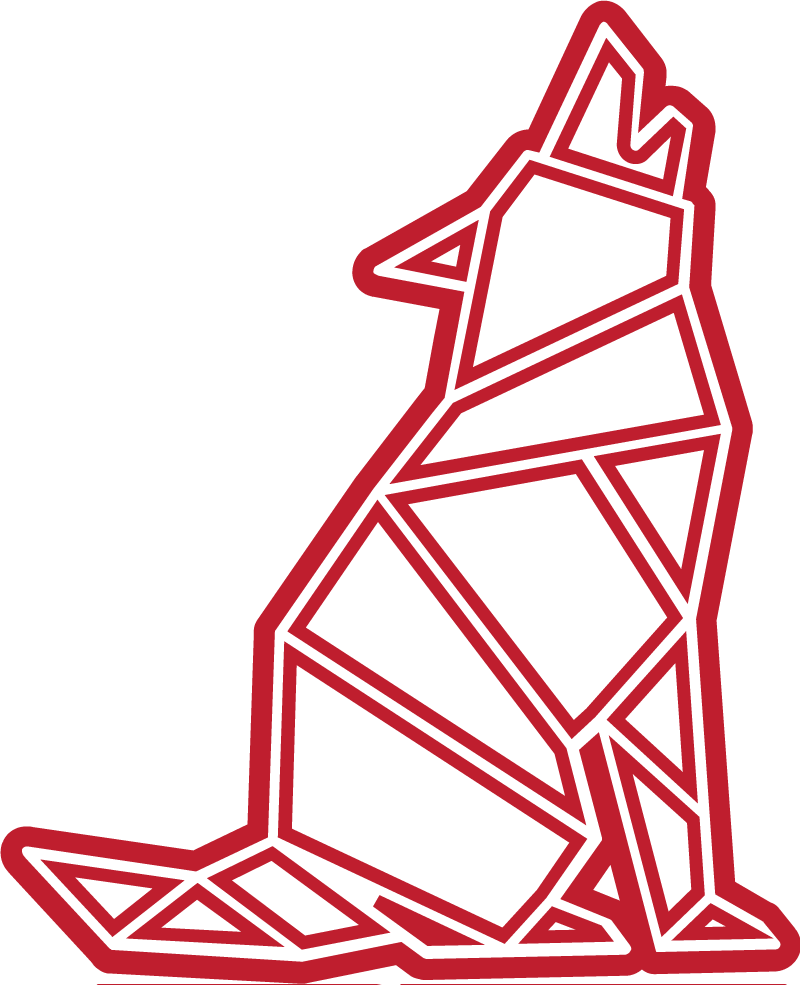Summit VIII – Speaker Awards, feedback and equality
We're pleased to announce the top three sessions of the Summit 2023, and the presenters that gathered the most votes from the audience.
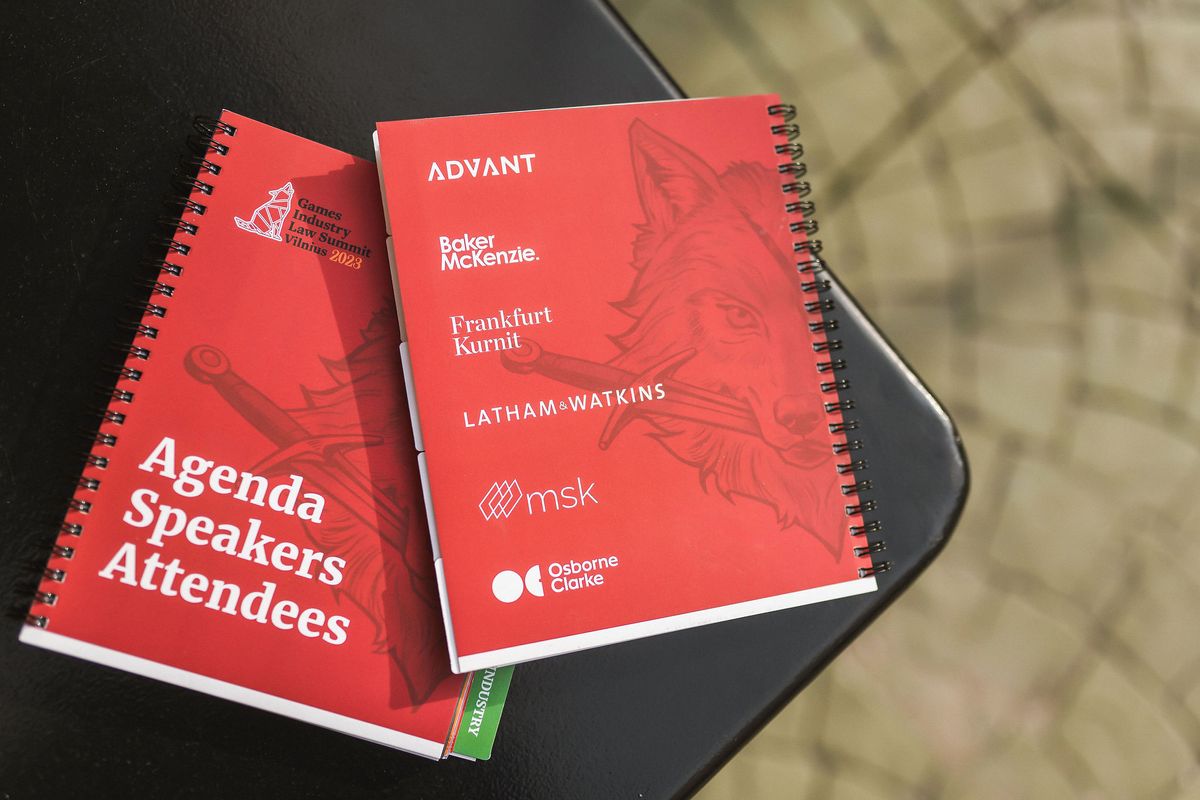
The 8th edition of the Summit is now over – thanks for coming!
The overall experience at the event is the outcome of 3 mechanics:
- the program
- the social space
- the mix of attendees
Each year we try to make a small step forward on each of these directions, responding to feedback as well to our own hunches.
Let's start with the program, where we are much pleased to announce the recipients of this year's Speaker Awards –>
Sessions: Professional Value
Last week, I've emailed each attendee with the invitation to vote for the panels ("professional value received"). The choice of the wording is important here: I don't think that we should rate, say, "flawless delivery" or generalise with "the best presentation". What we're after is the sessions that you find valuable – based on the topic, the depth of the discussion, and the different perspectives presented.
"AI DECONSTRUCTED"
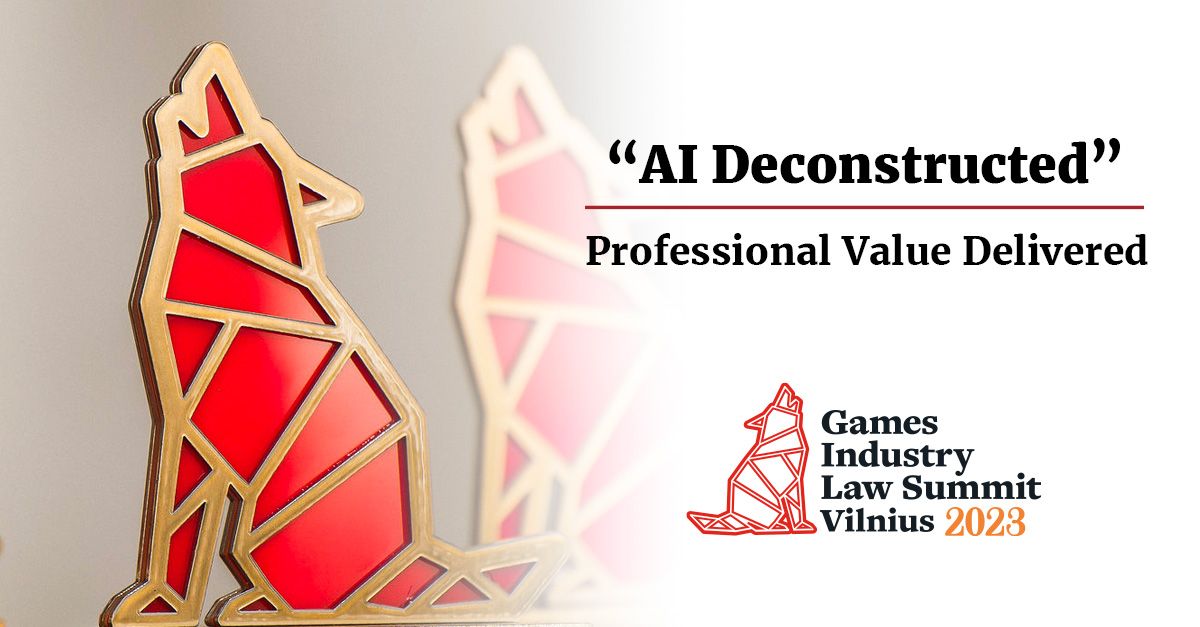
Among the 15 sessions on this year's agenda, the opening presentation – "AI Deconstructed" – got the most votes. Hats off to 🇺🇸 Karin Pagnanelli and 🇺🇸 Marc Mayer at MSK, 🇩🇪 Gregor Schmid at Taylor Wessing and 🇺🇸 Dan Nabel over at Riot Games!
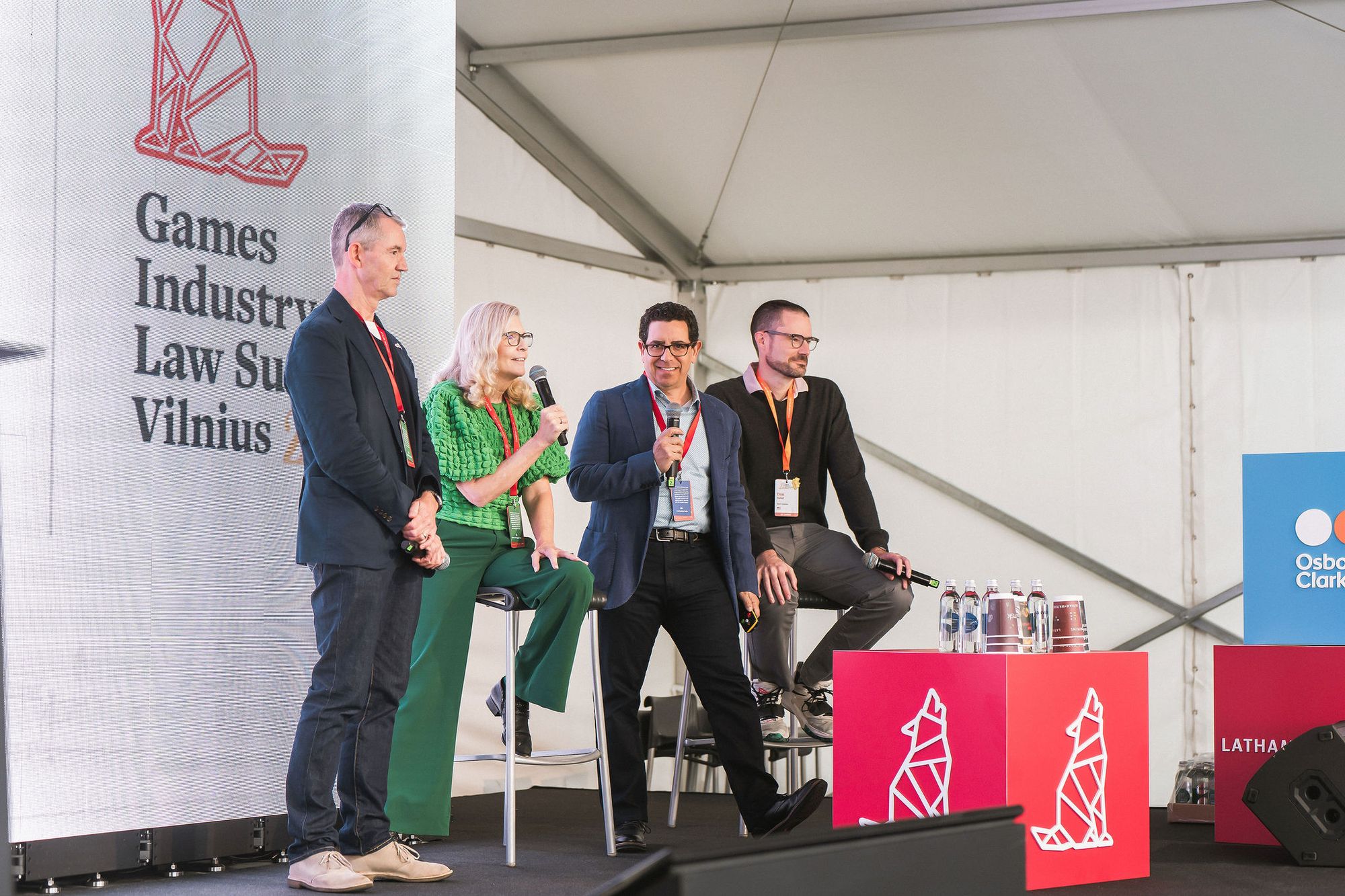
Not only did this 90-minute panel benefit from having both the US and the EU perspectives present, but it also relied on the combined expertise of law firms lawyers and one very experienced in-house counsel.
There's been a lot of prep work for this panel, and the panelists have invested significant effort into bringing value on the topic that's been, to put it mildly, over-exposed in the past few months. And it's been such a success.
The prize will soon be on its way to the LA office of the panel's lead, Karin –
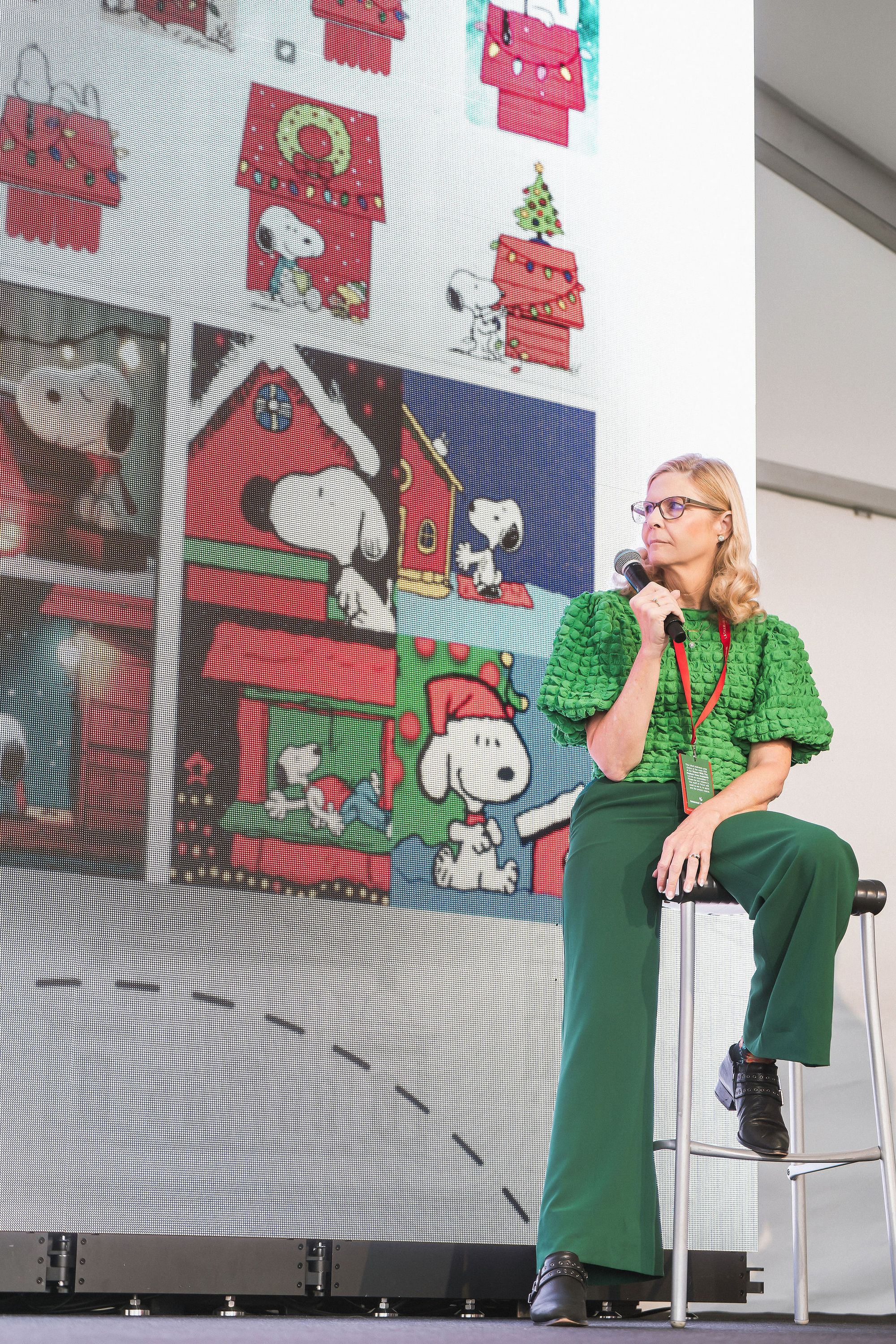
If you didn't attend this year, here's an illustration of the level of attention that the 310 counsels in the audience have paid to this session –
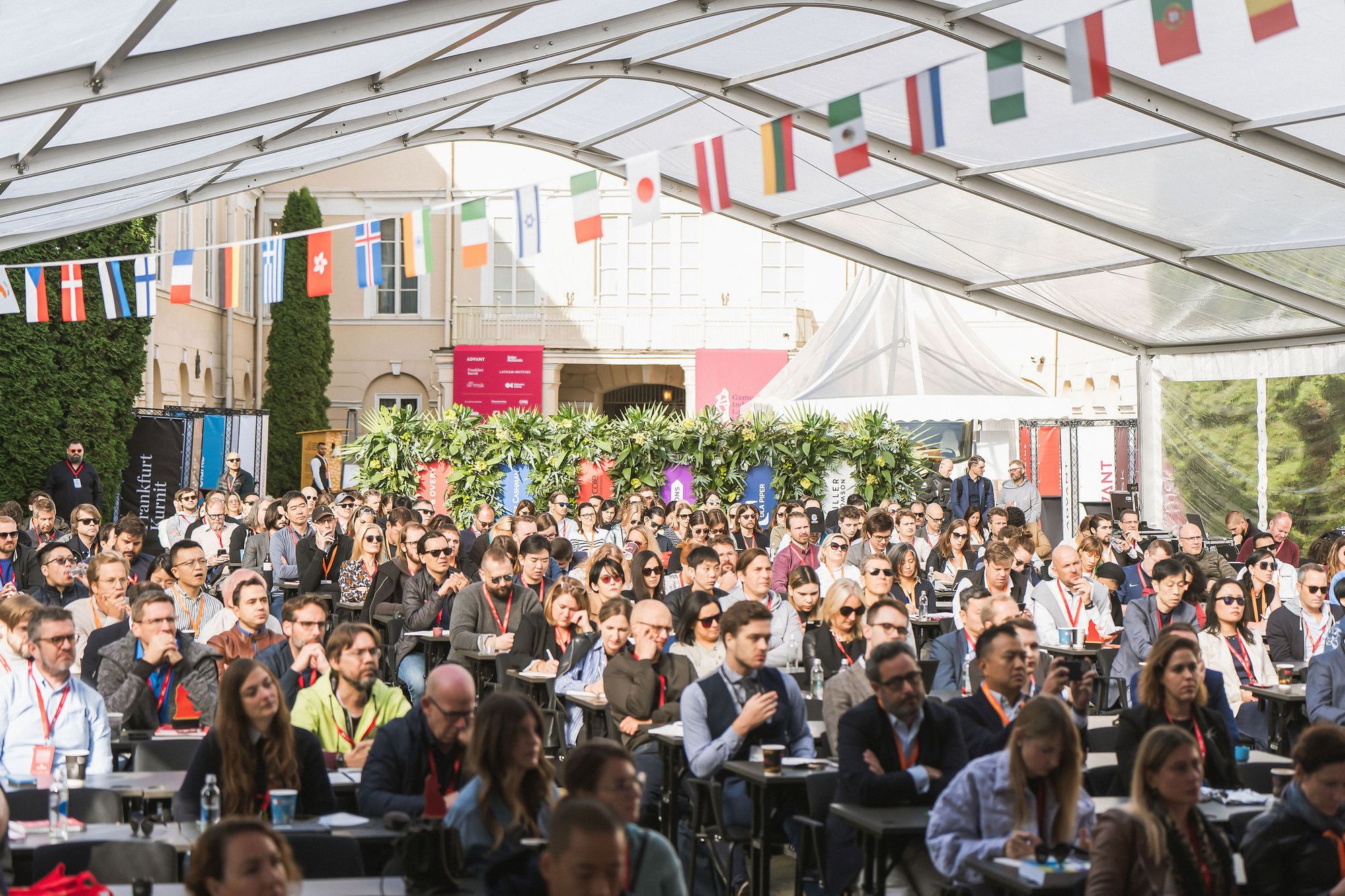
"UNVEILING THE SHADOWS: DARK PATTERNS & DSA"
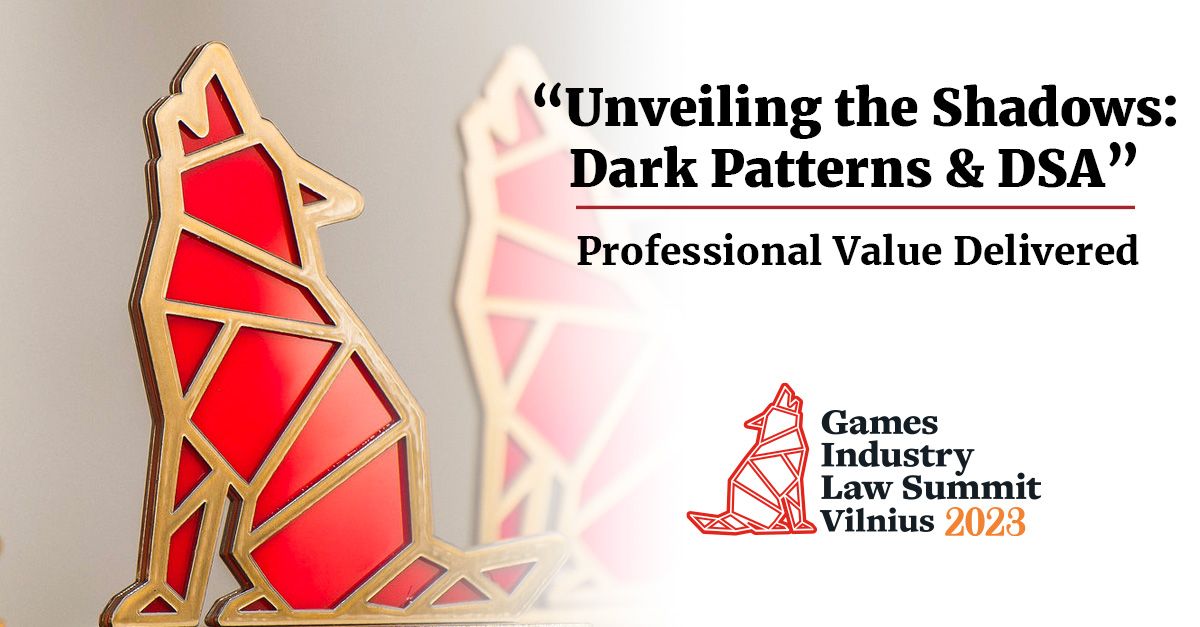
When Konni and Leonie agreed to present on this topic, I knew that we have a magnet for the audience, and we scheduled the talk to start right after the lunch on the second day of the program – which worked wonders.
"Unveiling the Shadows: Dark Patterns & DSA" follows "AI Deconstructed" as the winner for professional value delivered. Thanks, 🇩🇪 Konni Ewald and 🇩🇪 Leonie Schneider at Osborne Clarke!
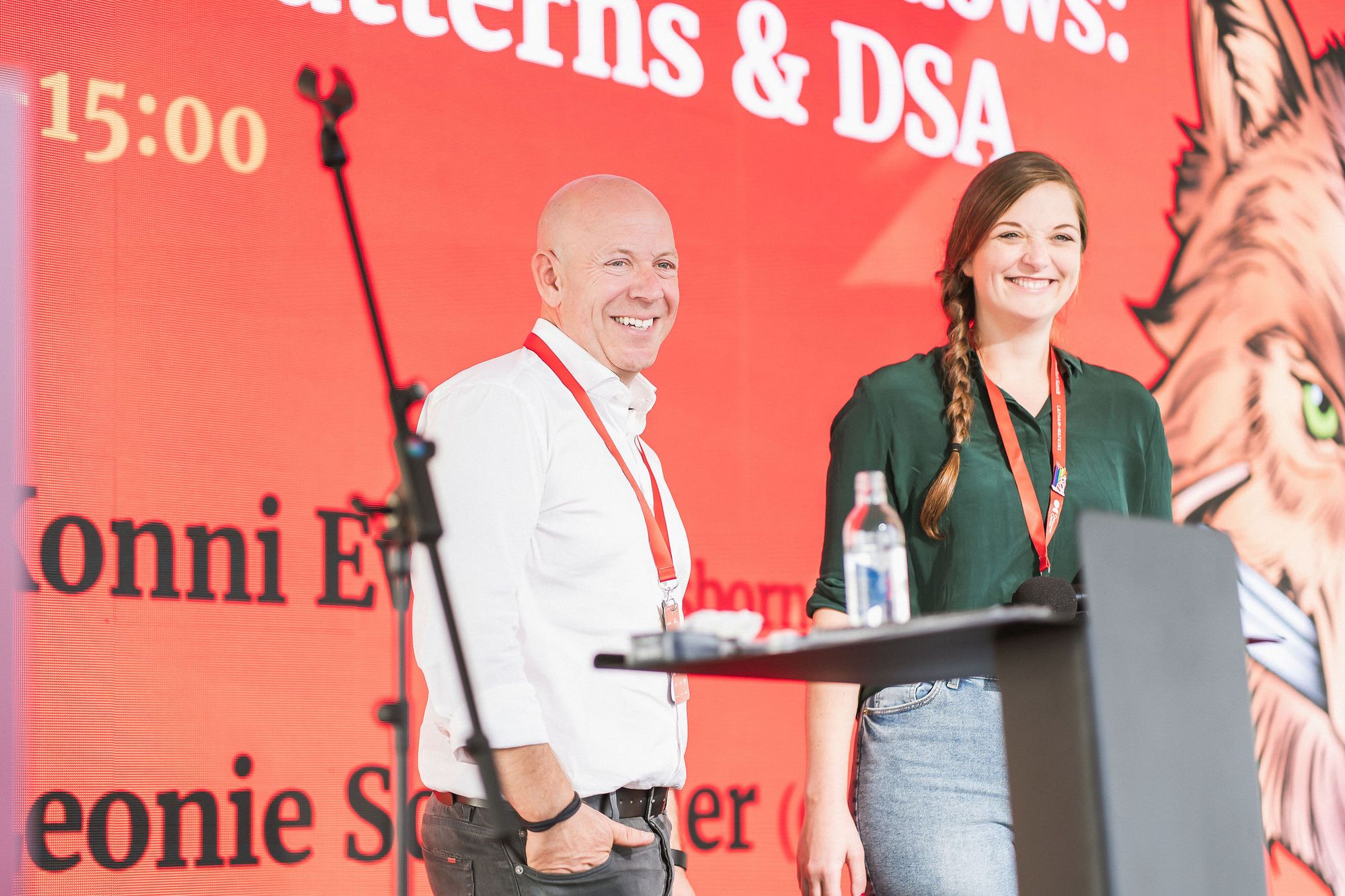
It's not often that you see counsels glued to their seats – right after lunch:
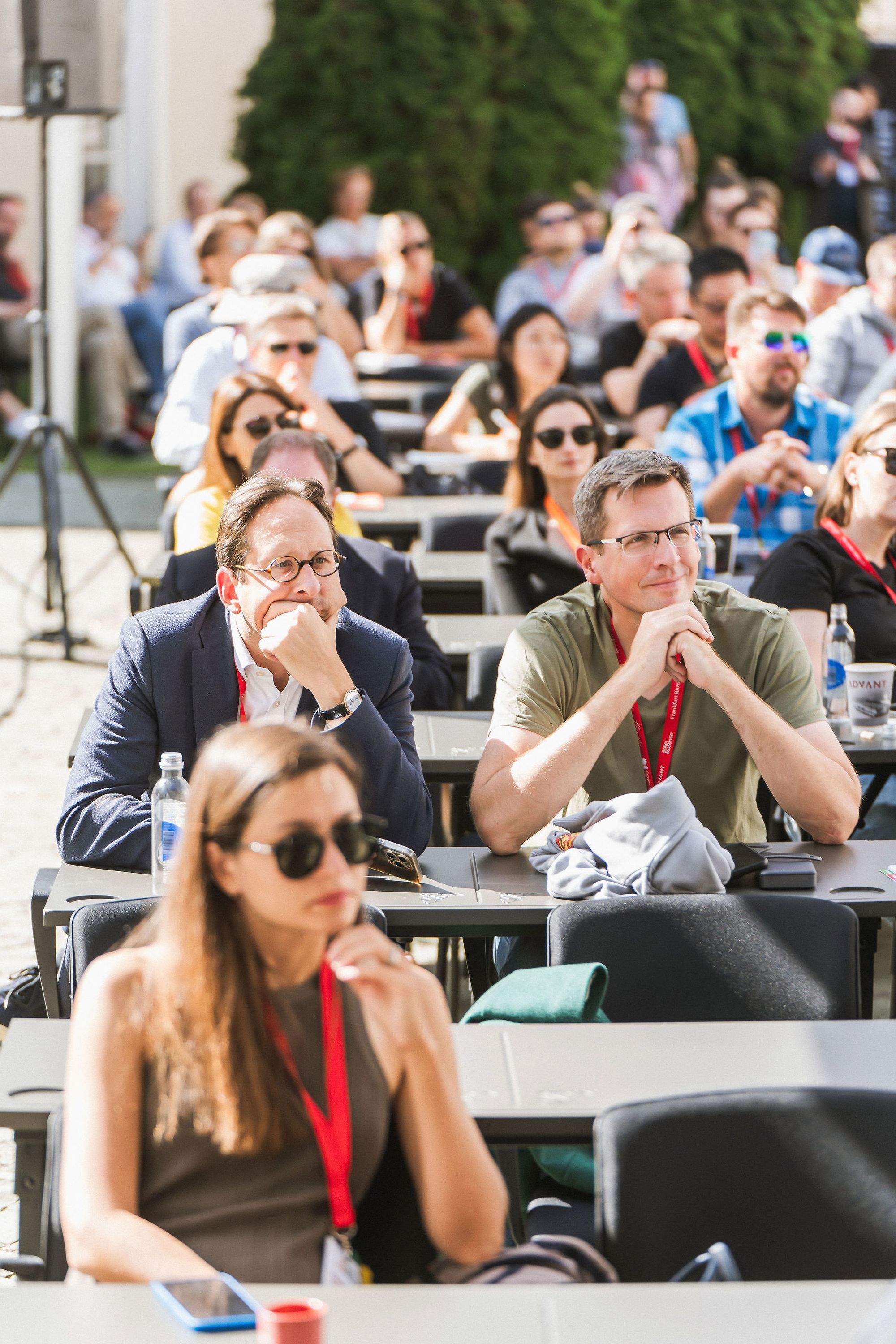
Next week, a wolf statue will be on its way to Osborne Clarke's office in Cologne.
"CHINA: THE PATH TO SUCCESS"
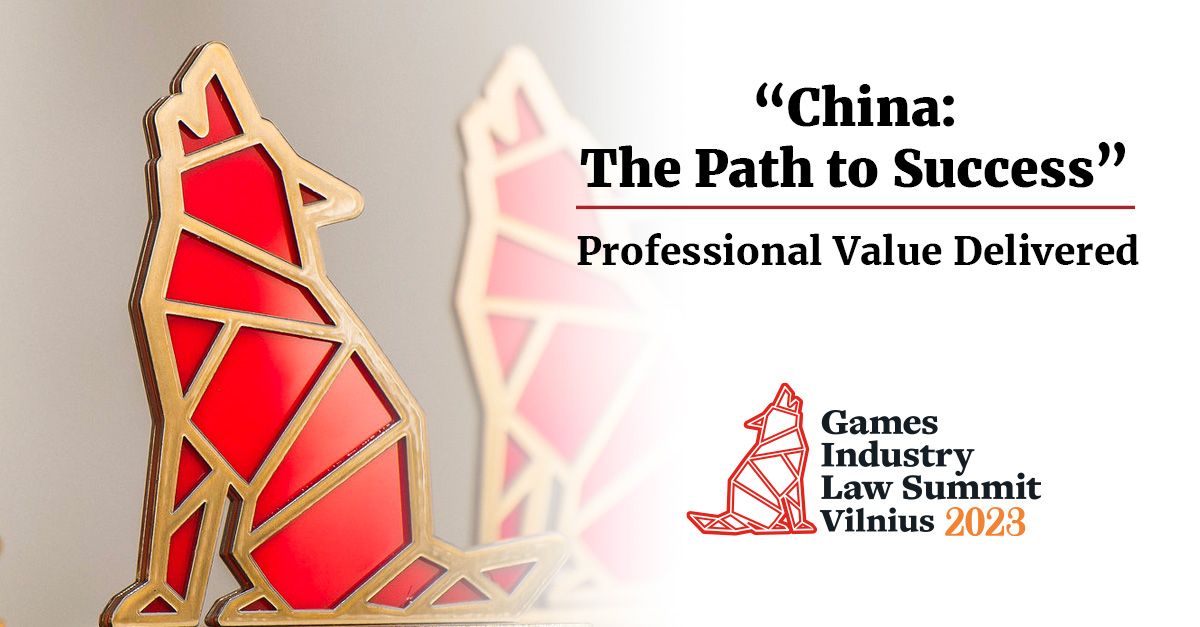
A common feature shared by this year's top sessions is the amount of preparation, and iteration, that the panelists have invested into building their decks. The China panel is no exception: at one point, I had to stop in front of the tunnel from Italy to Monaco, because I didn't want to lose Jack calling from Shanghai and Greg connecting from Paris (if you ever think of doing this: please don't; I don't know why, but the drivers have very little patience in that region...).
As is the case with some of the panels this year, in addition to presenters themselves, there was also the help from the back office – and here, we're indebted to 🇨🇳 Ziwei Zhu (朱紫薇) at Pillar Legal for coordinating the collective effort across several time zones. Which was very much worth it, since the panel took the third place!
Thanks to 🇩🇪🇨🇳 Thomas Pattloch at Taylor Wessing –
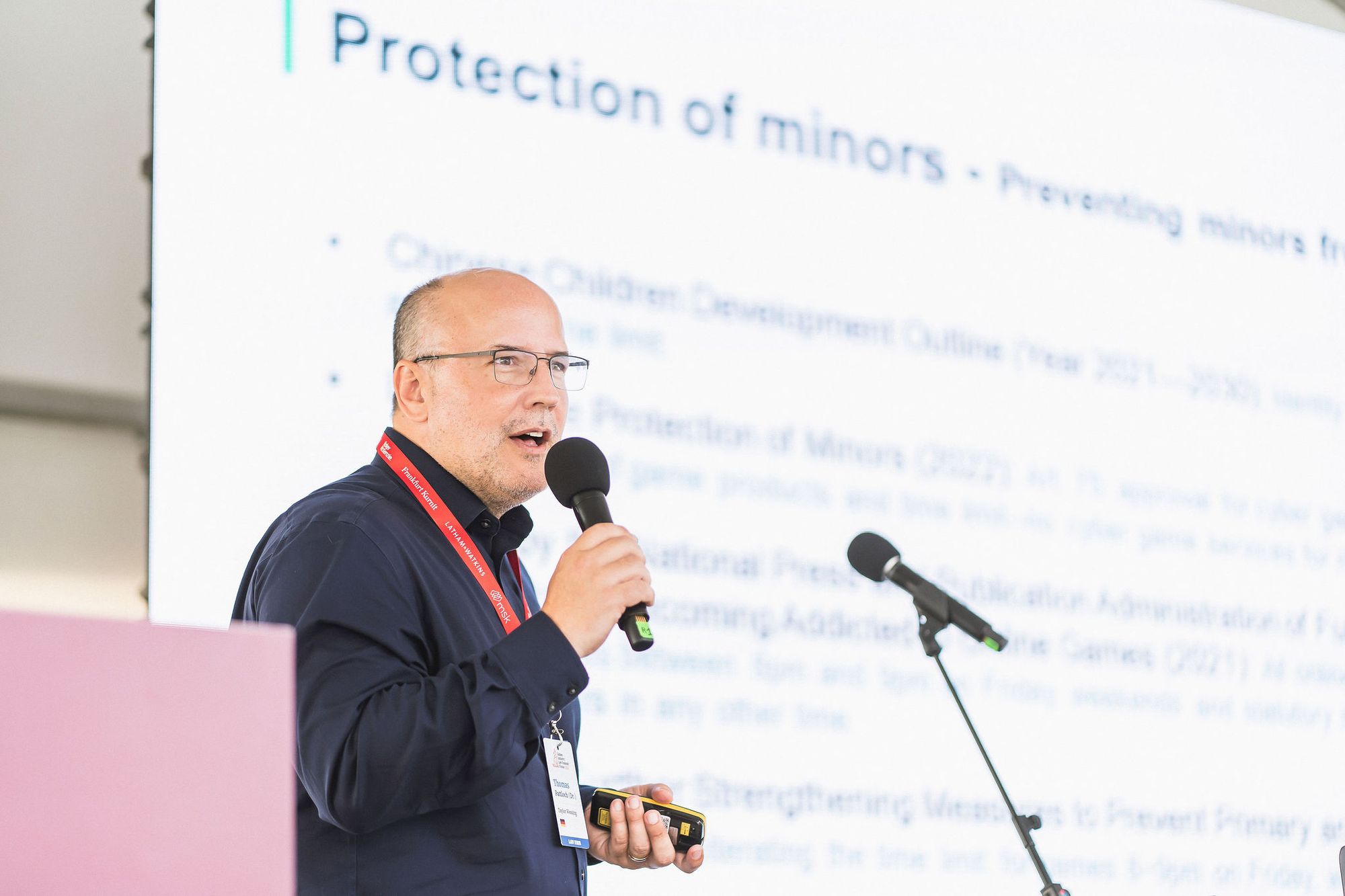
Thanks to 🇺🇸🇨🇳 Greg Pilarowski (刘思道) at Pillar Legal (美国博申律师事务所) –
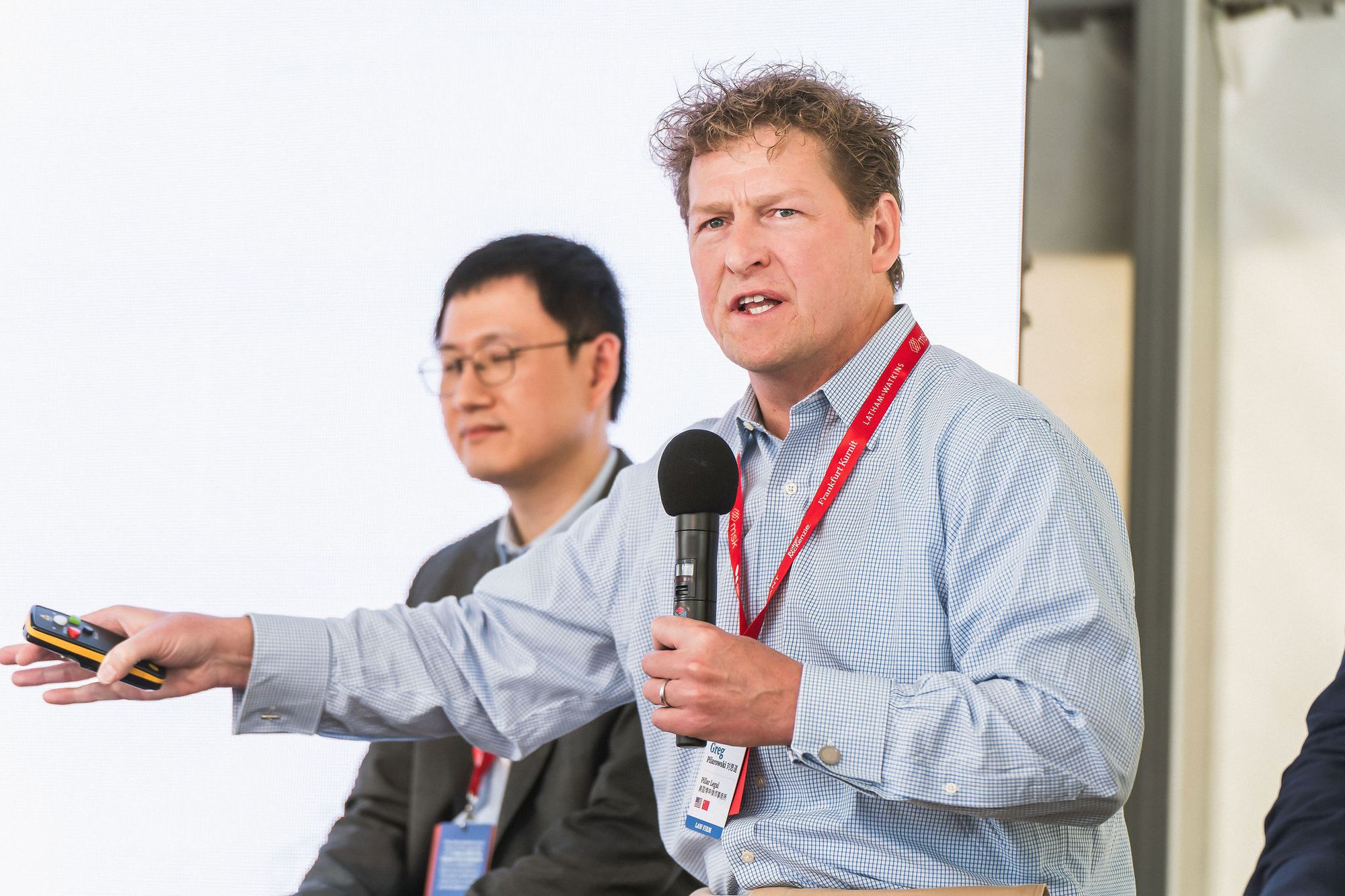
And thanks to 🇨🇳 Jack Chen (陈潇侠) at Dentons (律师) –
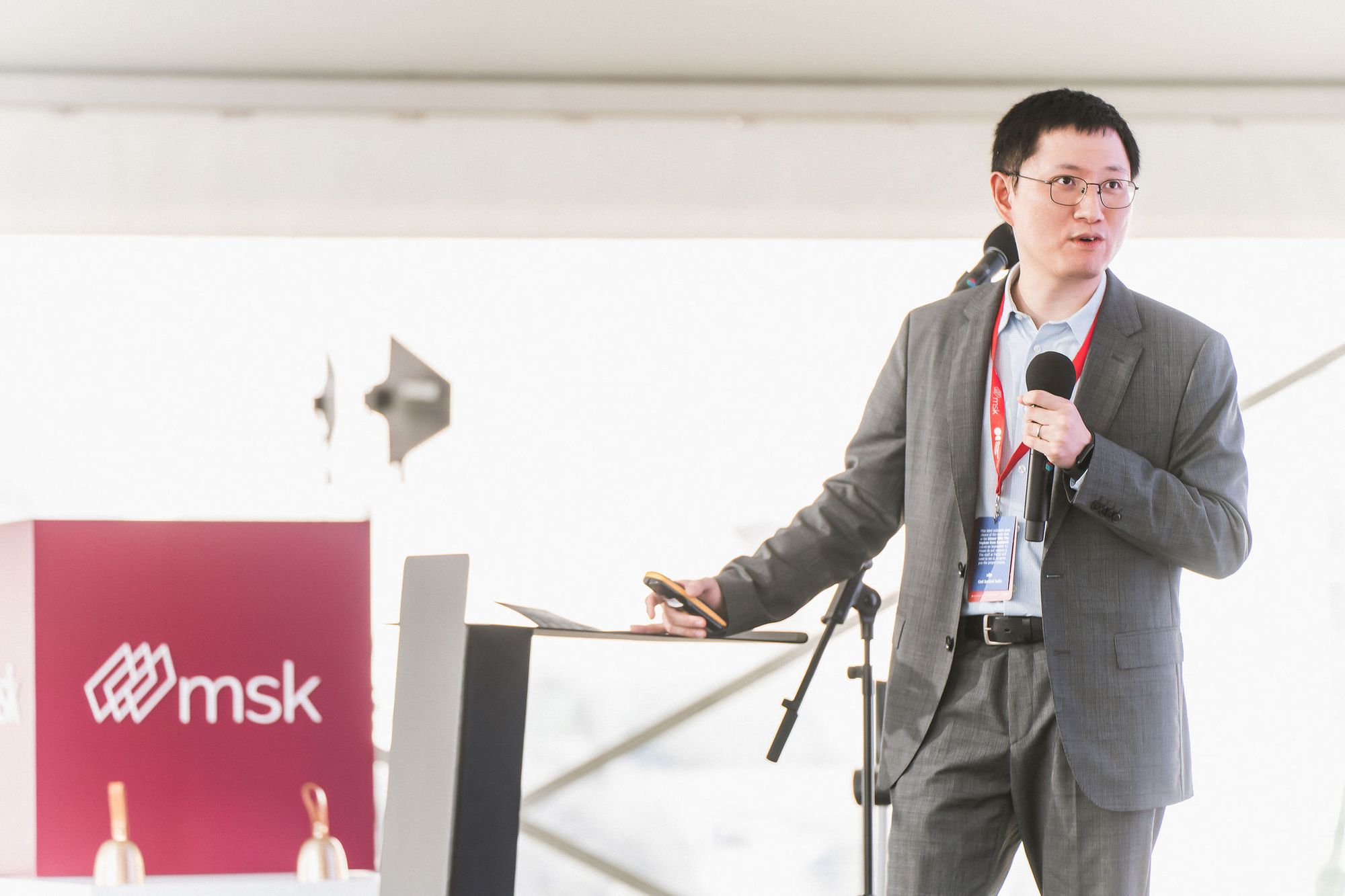
We're going to mail the wolf to San Francisco.
Speakers: Contribution
Similarly to the question about sessions, the voting for speakers was worded as "whose contribution you enjoyed the most" – to highlight that it's not about having the perfect accent or performing stage acrobatics, but about the people in the audience getting inspired from hearing you talk.
Out of nearly 60 speakers this year, we asked the community to nominate 5 in-house counsels and 5 law firm lawyers – separately, because the roles and the expectations are rather different. Let's start from the in-house folks:
Dan Nabel (Riot Games)
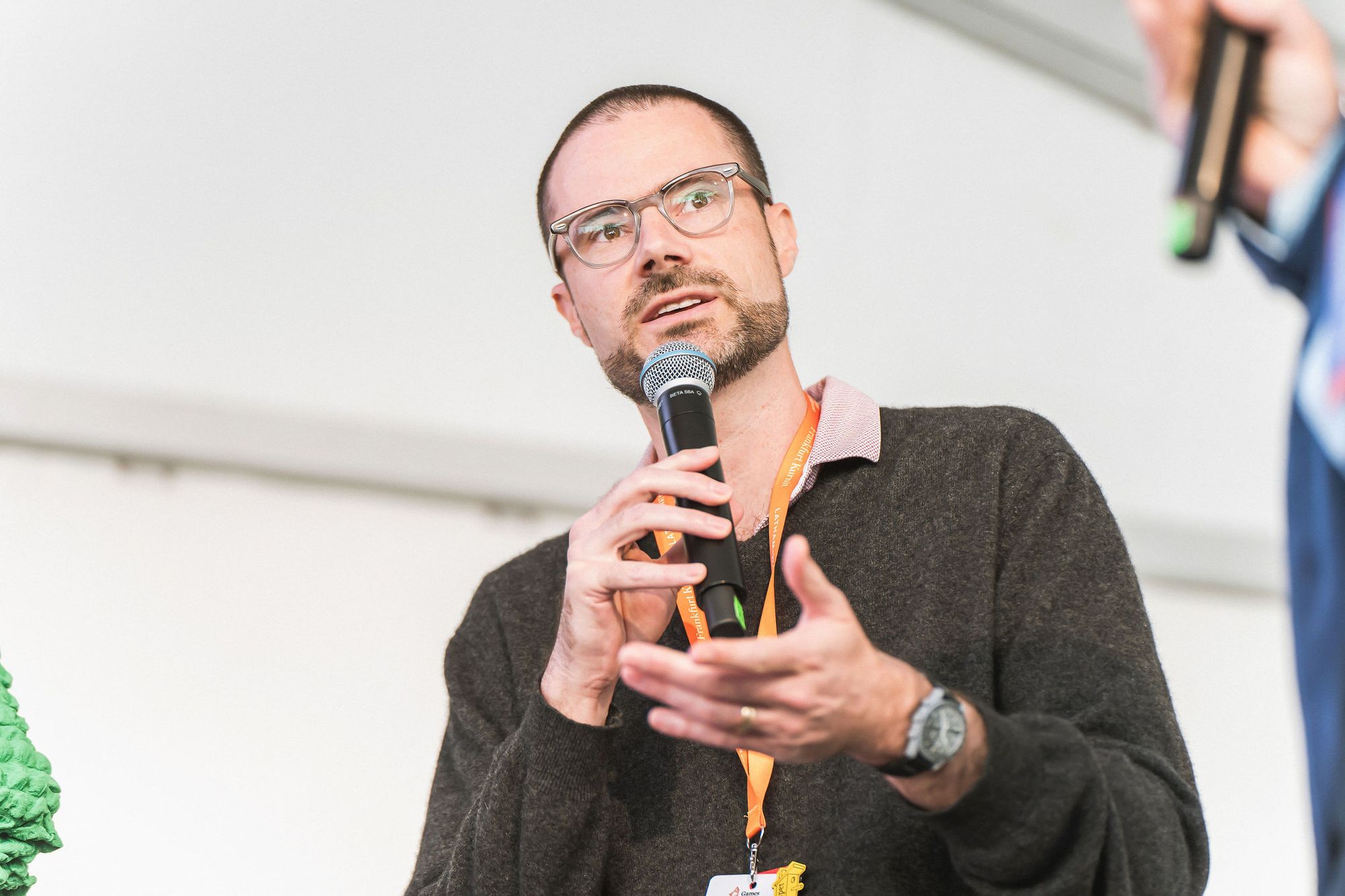
🇺🇸 Dan Nabel at Riot Games, with his stellar contribution to "AI Deconstructed", won the in-house category.
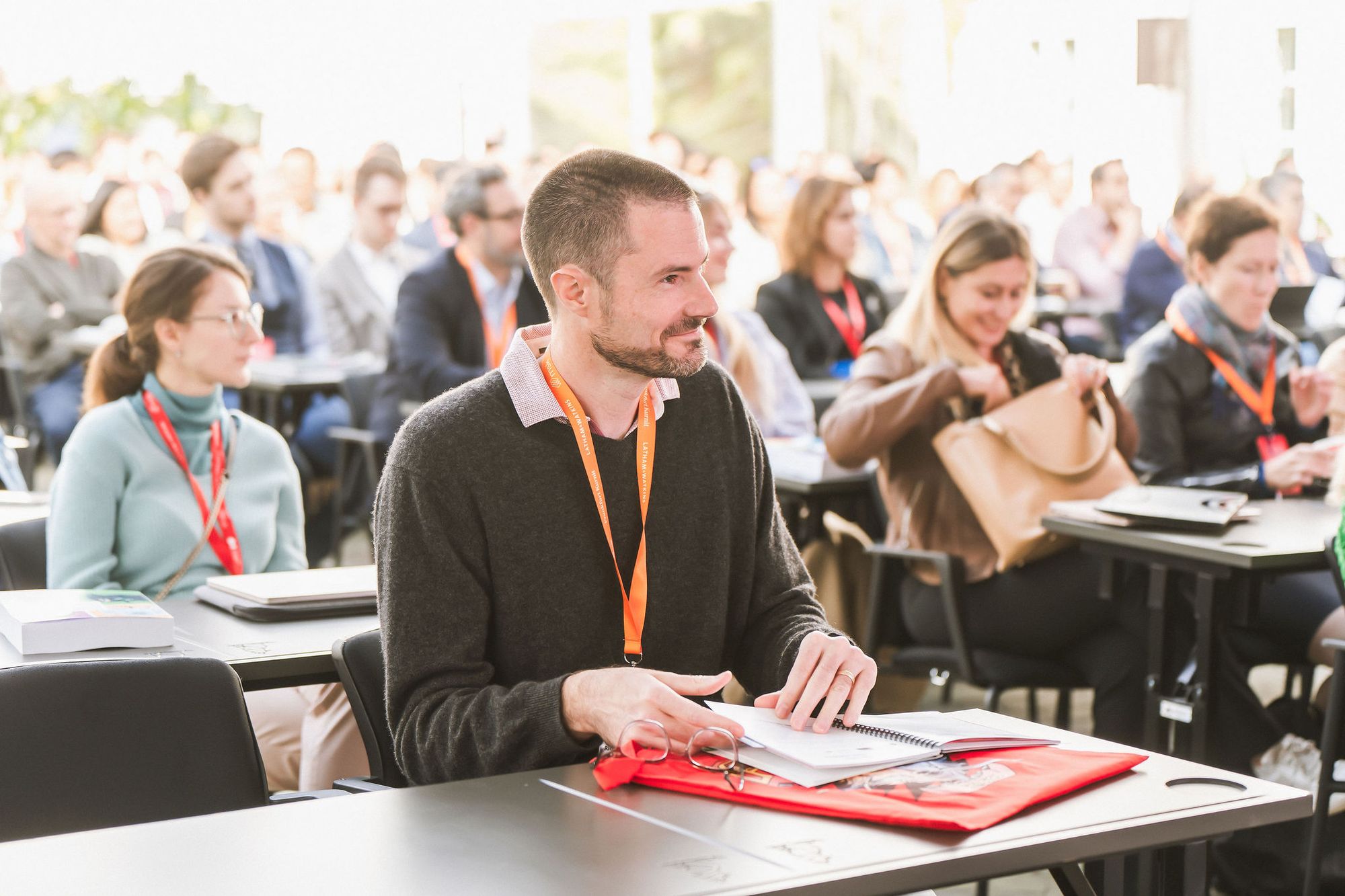
Dan also won in the overall voting, among the both categories. Congratulations!
Boğaç Erozan (Riot Games)
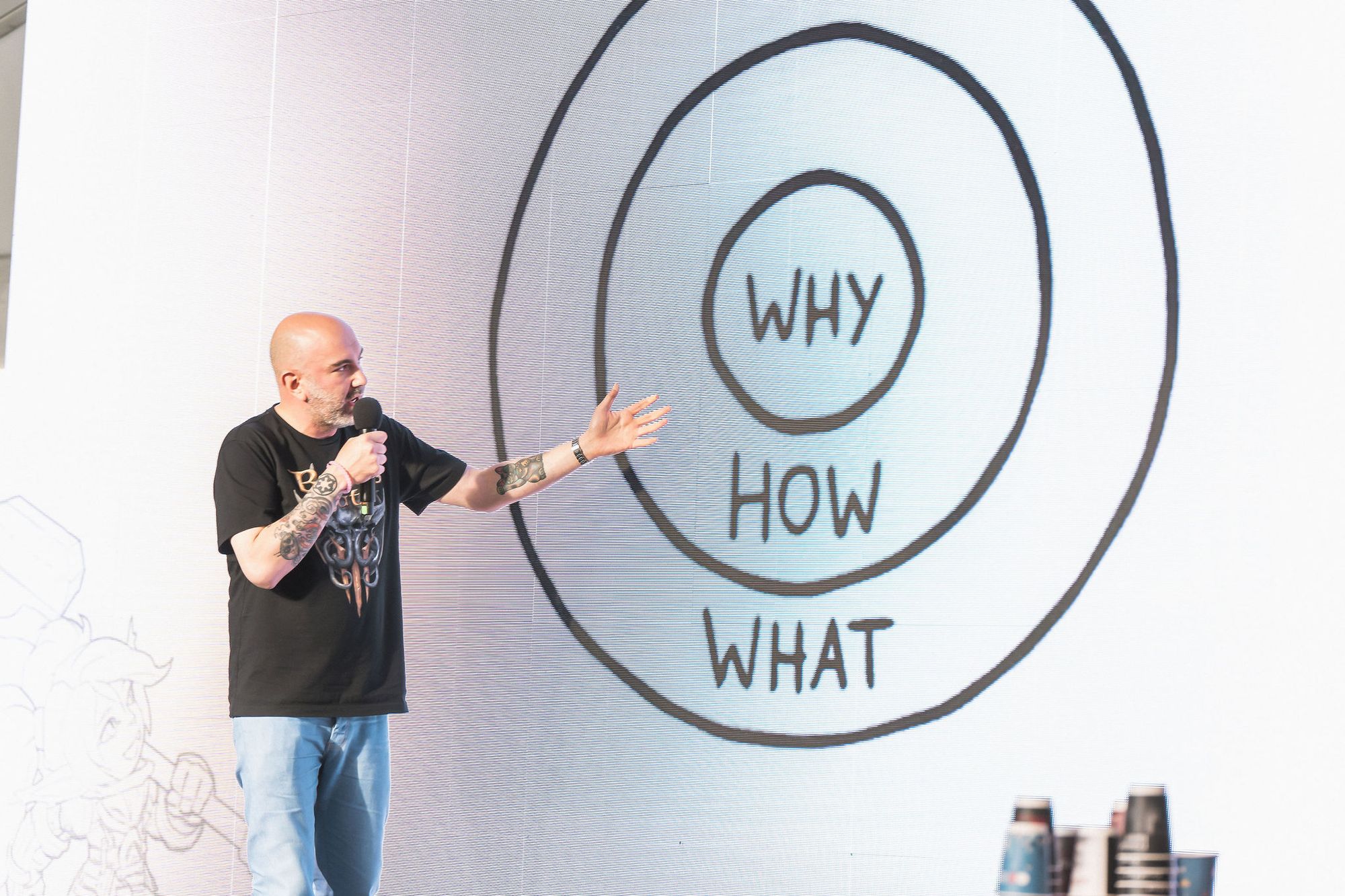
🇮🇪 Boğaç Erozan, also at Riot Games (but this time at the studio's EU HQ), follows Dan in the in-house category, thanks to his session "Legal Services: Identity & Expectations" (which almost made it into the top 3 panels!).
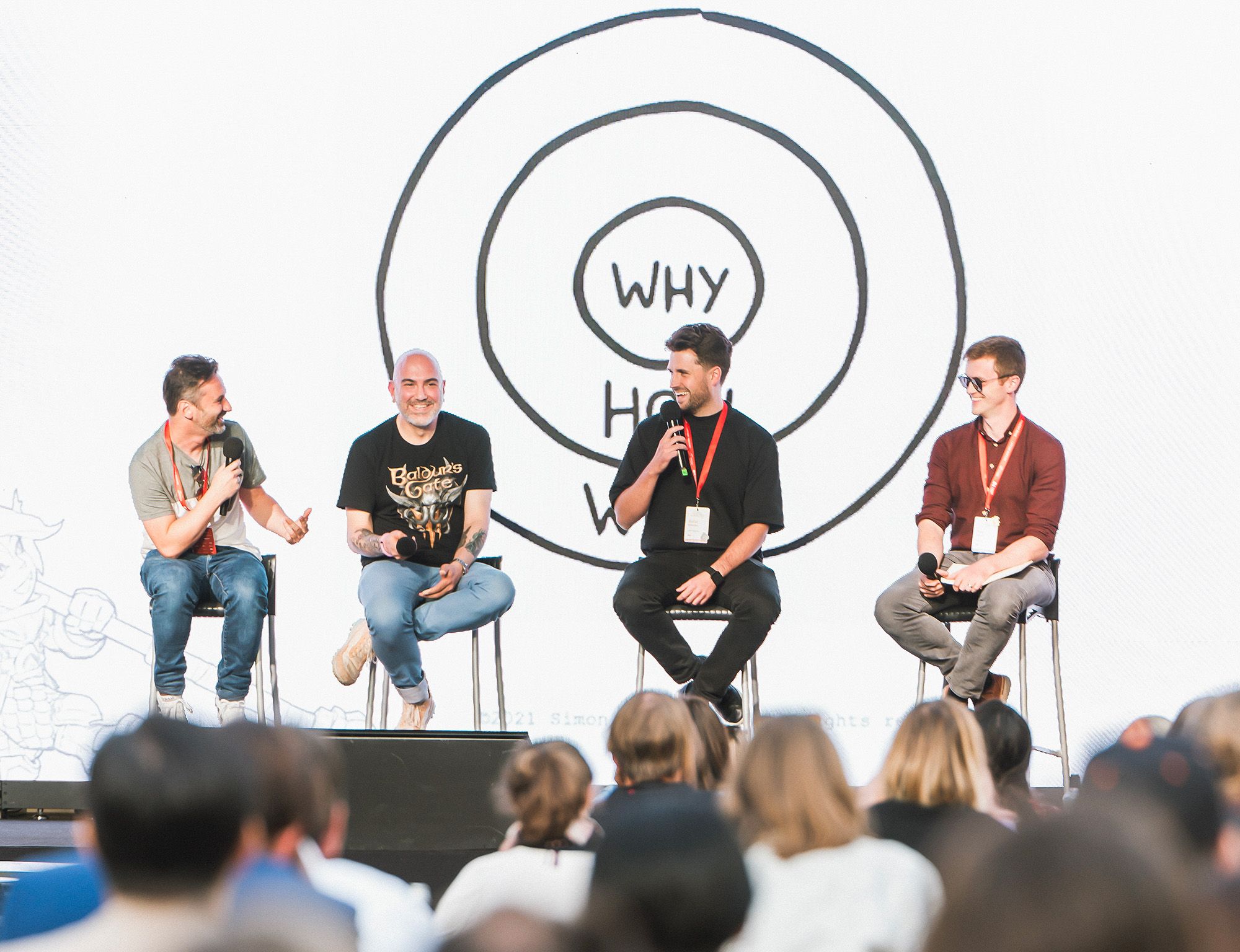
Many counsels have since came forward to say that what Boğaç and his fellow panelists have articulated, was already a much debated topic in the industry – and it felt great to hear it structured, and confirmed, from stage.
Darya Firsava (Wargaming)
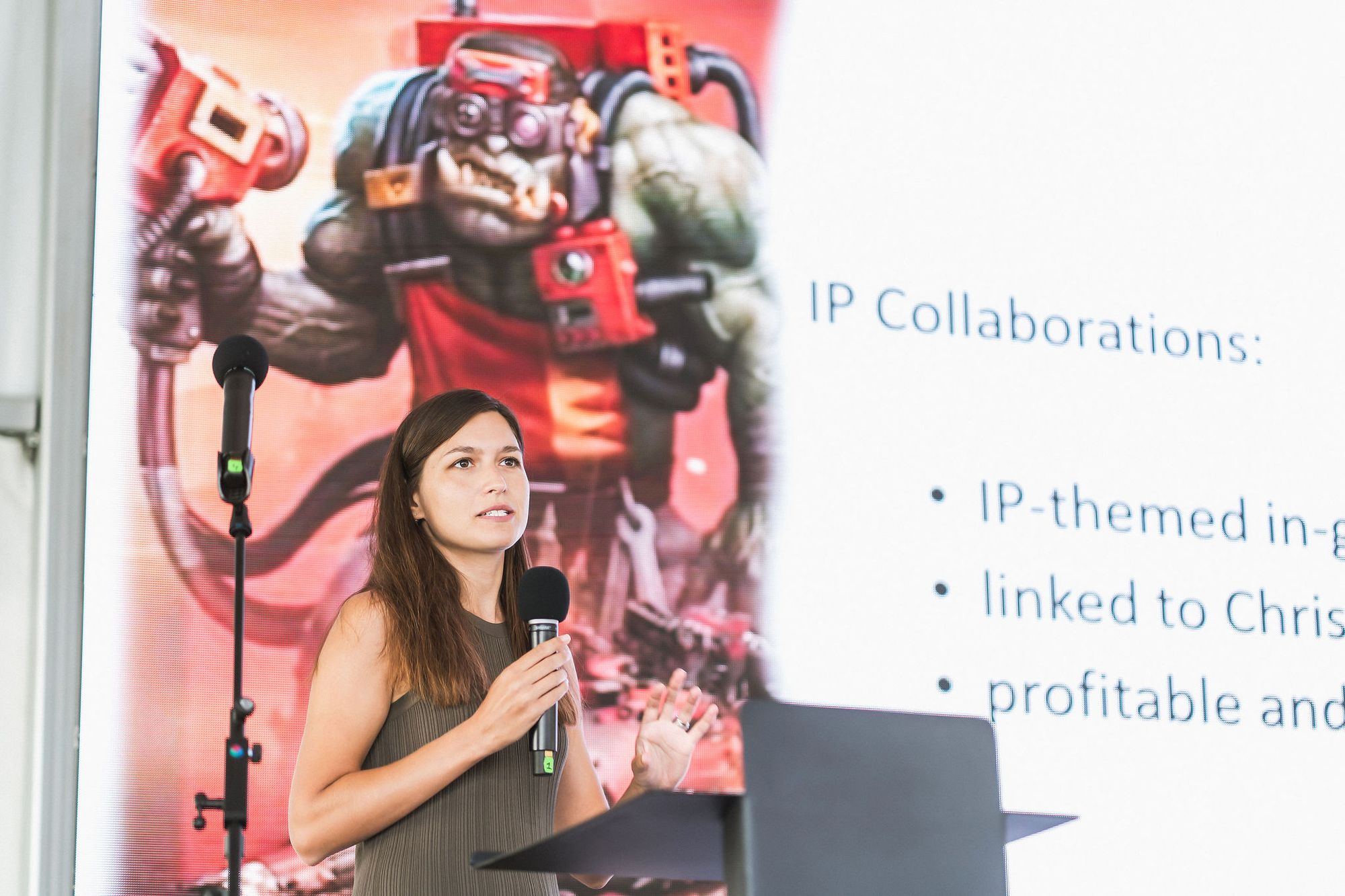
🇨🇾 Darya Firsava at Wargaming follows Boğaç, recognized for her contribution to making"Cross-Media Licensing" panel valuable.
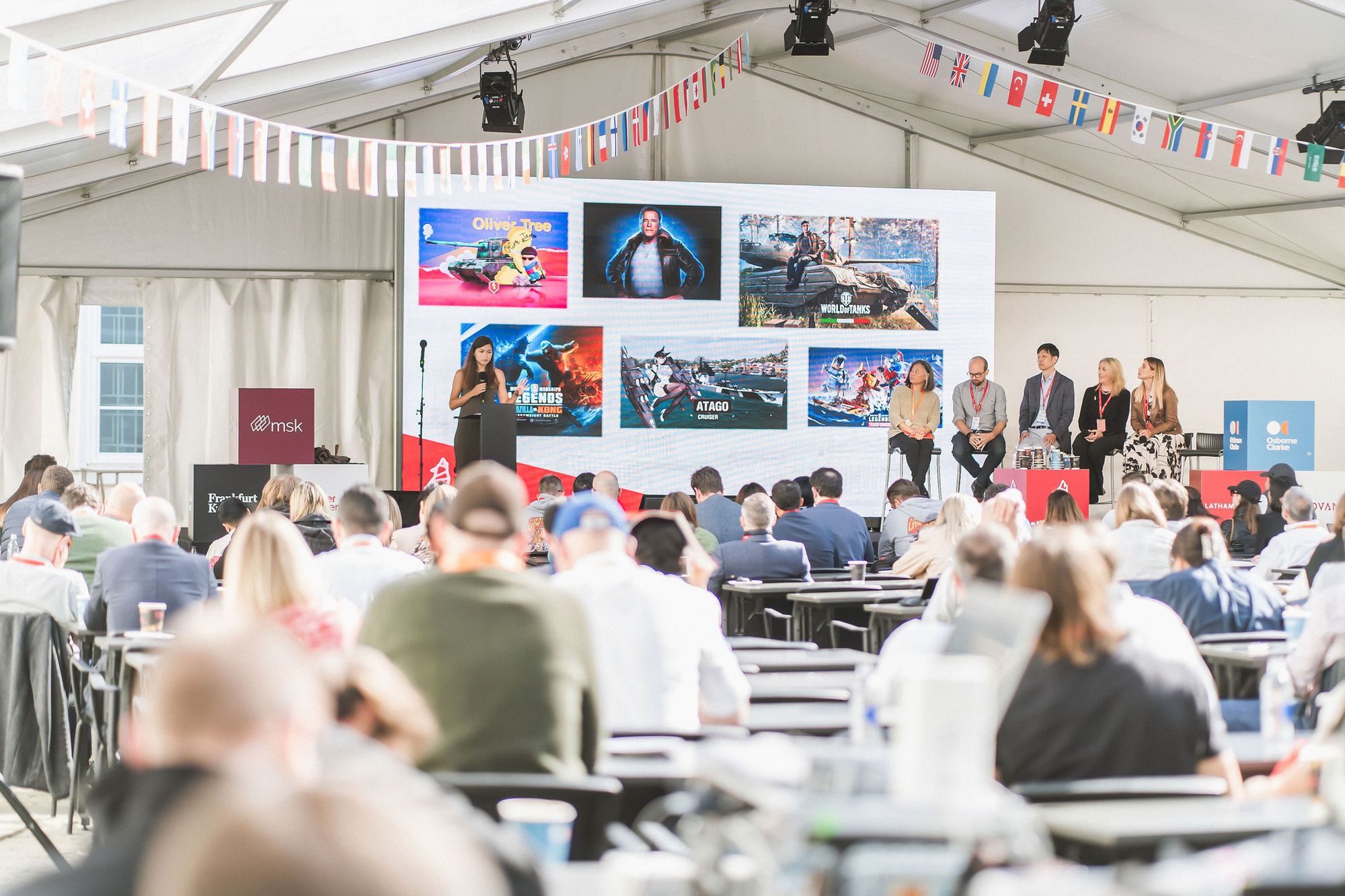
It's common knowledge that the collaboration between film and games is not always easy, but the issues of mixed age ratings and challenged ownership of digital items were much less obvious.
Canon Pence (Epic Games)
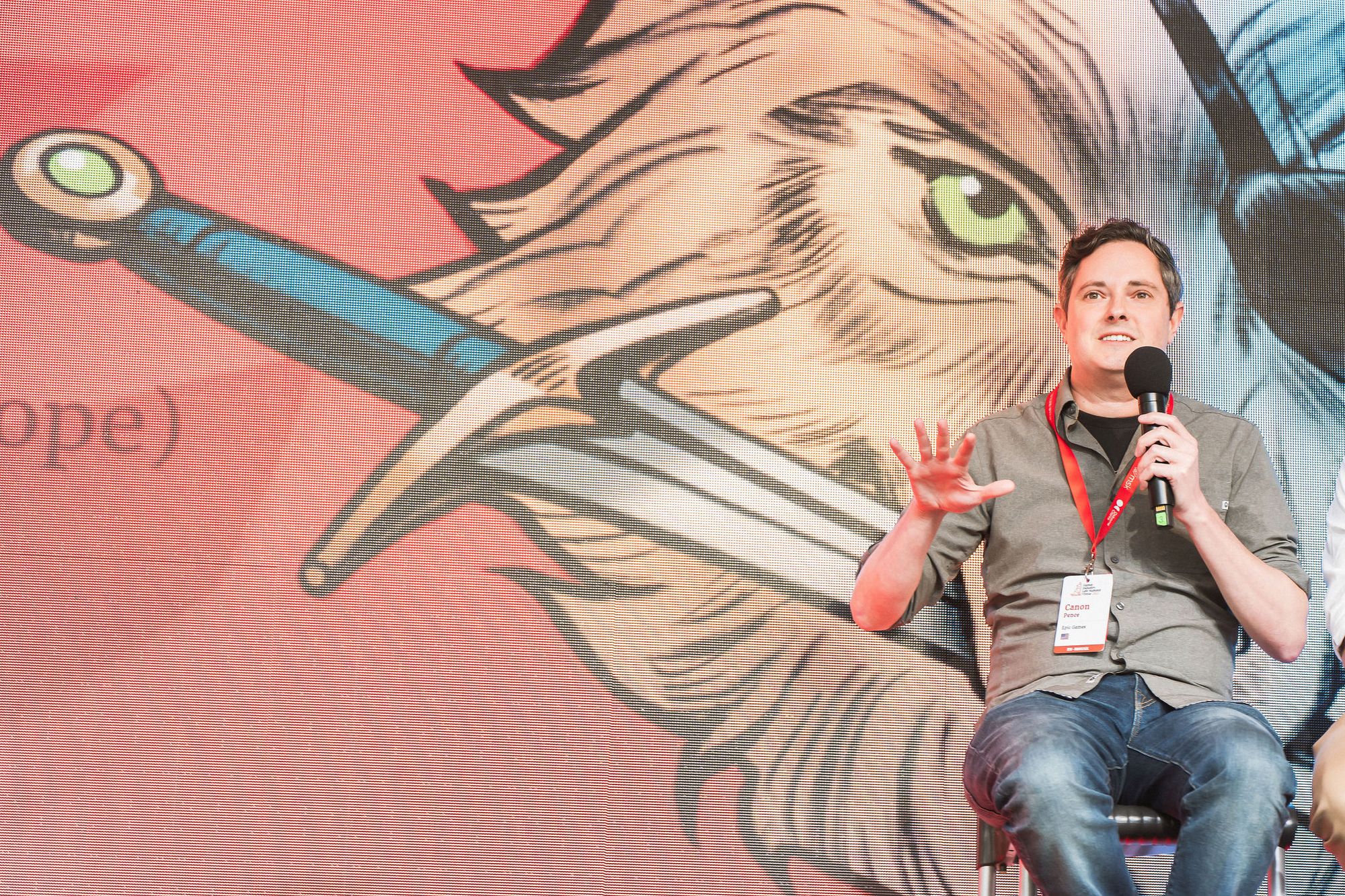
🇺🇸 Canon Pence of Epic Games has been helping us develop this community already for many years, and this time the audience specifically appreciated his contribution as a co-lead on "Making Associations Work".
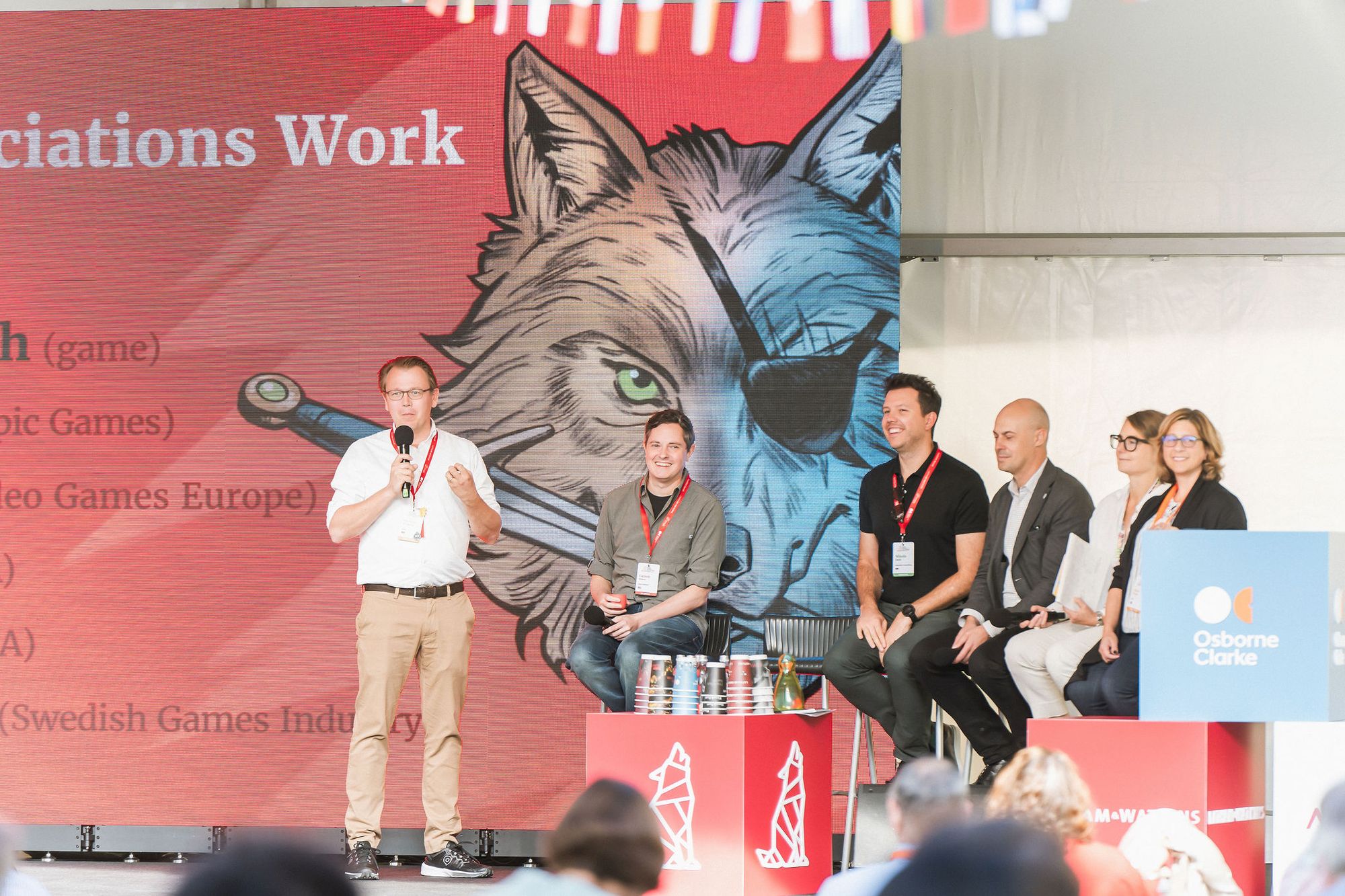
The topic isn't simple, but Canon and Henner made it easy to follow, with the help of an excellent panel that represented 5 associations with proven track record and practices to share.
Kathy Carpenter (Wizards of the Coast)
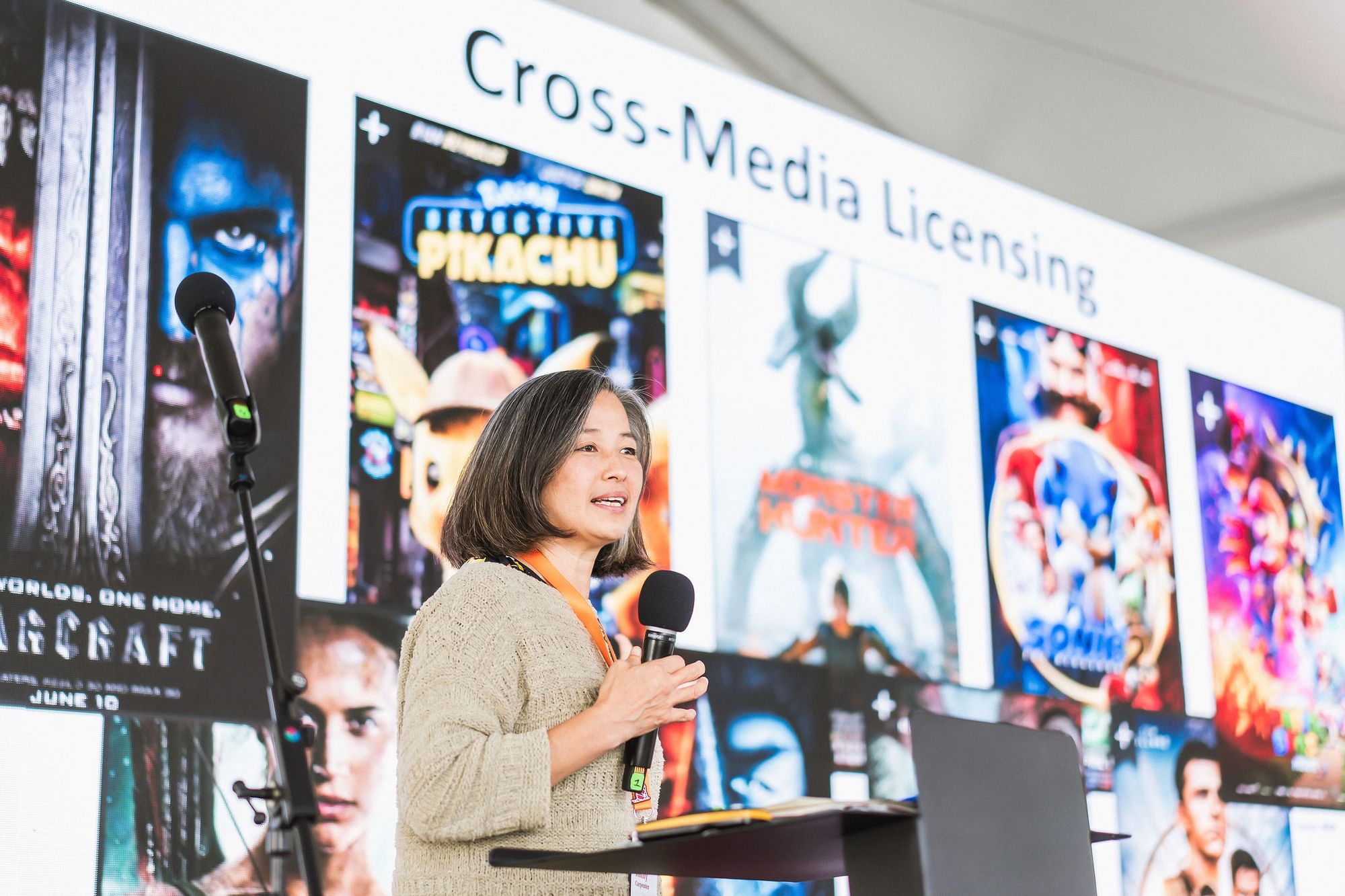
Finally, 🇺🇸 Kathy Carpenter of Wizards of the Coast closes the list of the top-5 in-house speakers, thanks to her contribution to "Cross-Media Licensing".
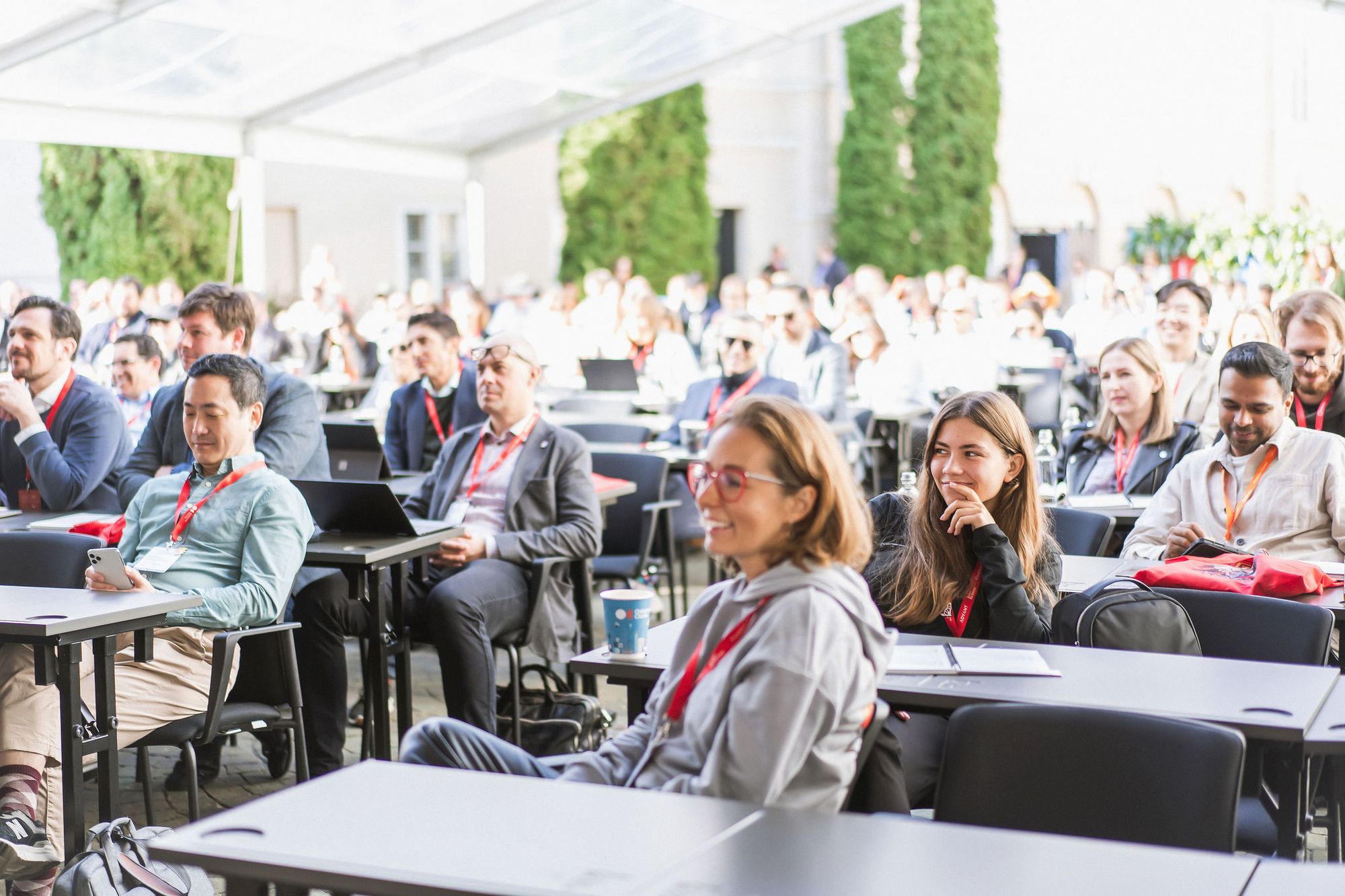
Looking at this photo, I think you can understand why Kathy's talk was such a pleasure to attend – not only on point, but also with enough irony to prompt people to remember similar cases from their own practice (oh, Peter Jackson...).
Marc Mayer (MSK)
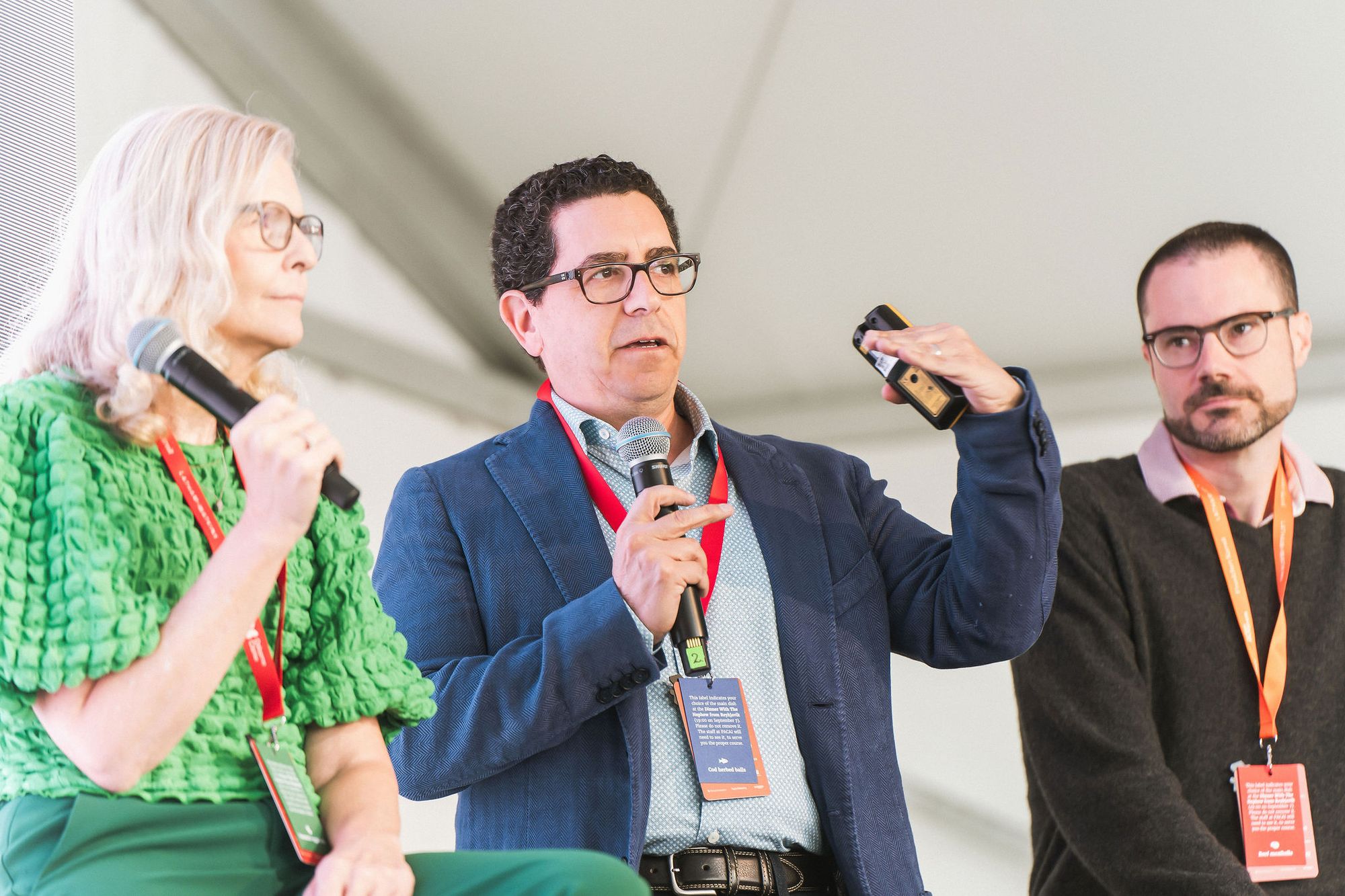
Scoring just one vote less than Dan Nabel, 🇺🇸 Marc Mayer of MSK leads the top of the law firm speakers, based on his contribution to "AI Deconstructed" (which only goes to show what a remarkable panel that has been!).
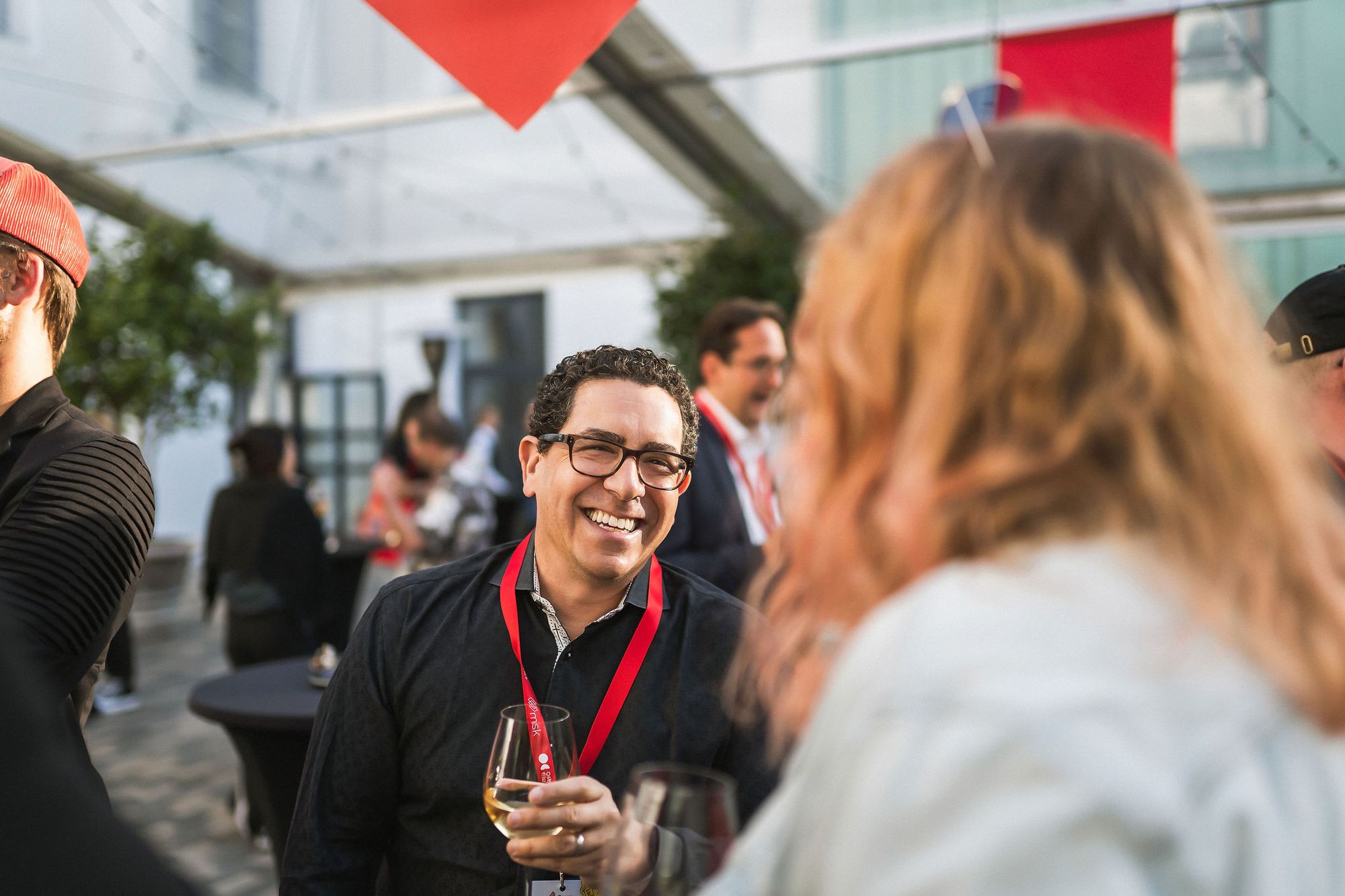
There's little surprise that Marc and his team at MSK keep winning in court.
Konni Ewald (Osborne Clarke)
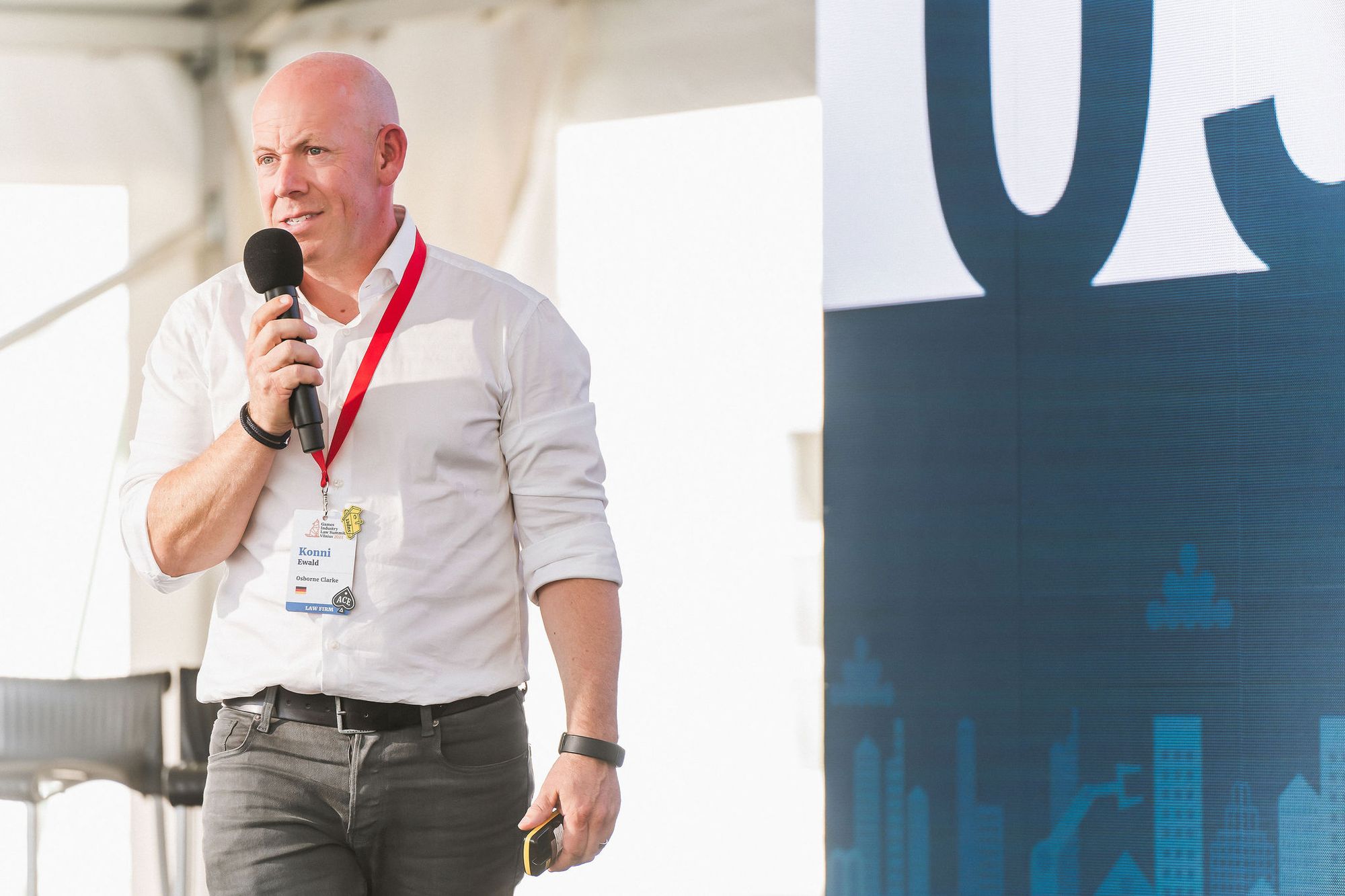
🇩🇪 Konni Ewald at Osborne Clark follows Marc, with much recognition for "Unveiling the Shadows: Dark Patters & DSA".
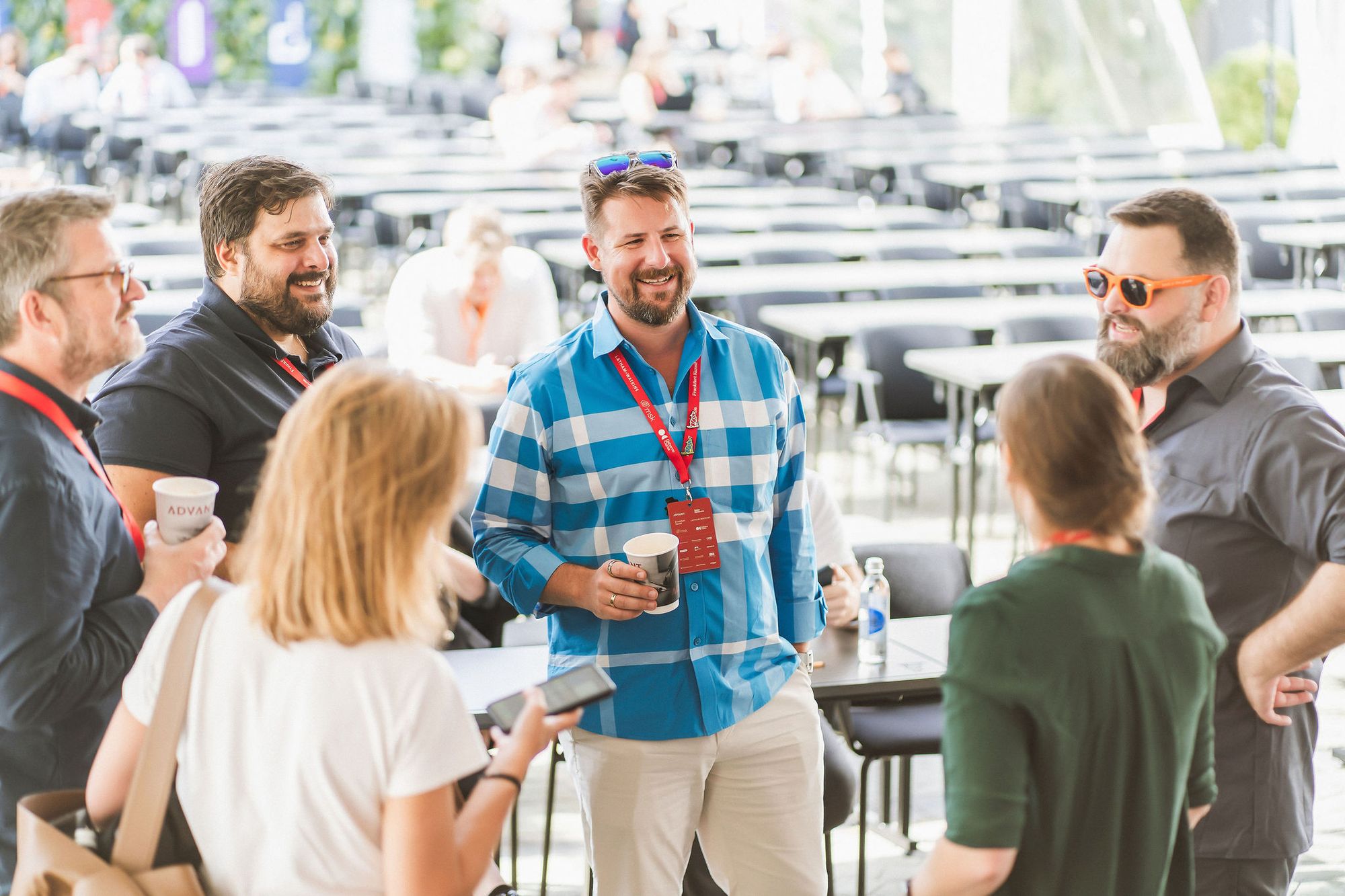
And how can you not perform at your top, if you have such a fantastic group of colleagues in the audience?
Karin Pagnanelli (MSK)
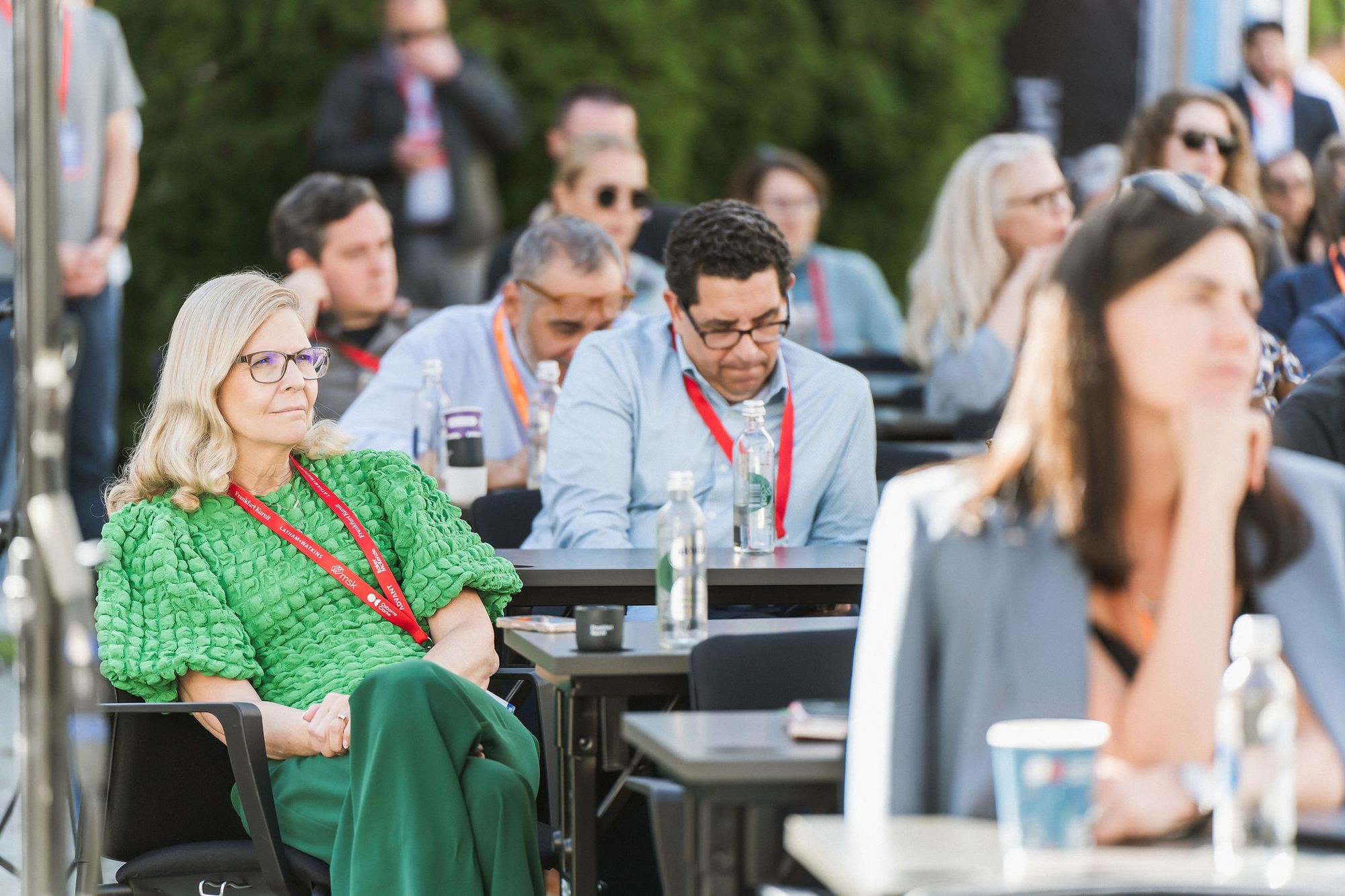
Joining Marc and Konni is 🇺🇸 Karin Pagnanelli at MSK, a fantastic presenter who organised and lead "AI Deconstructed".
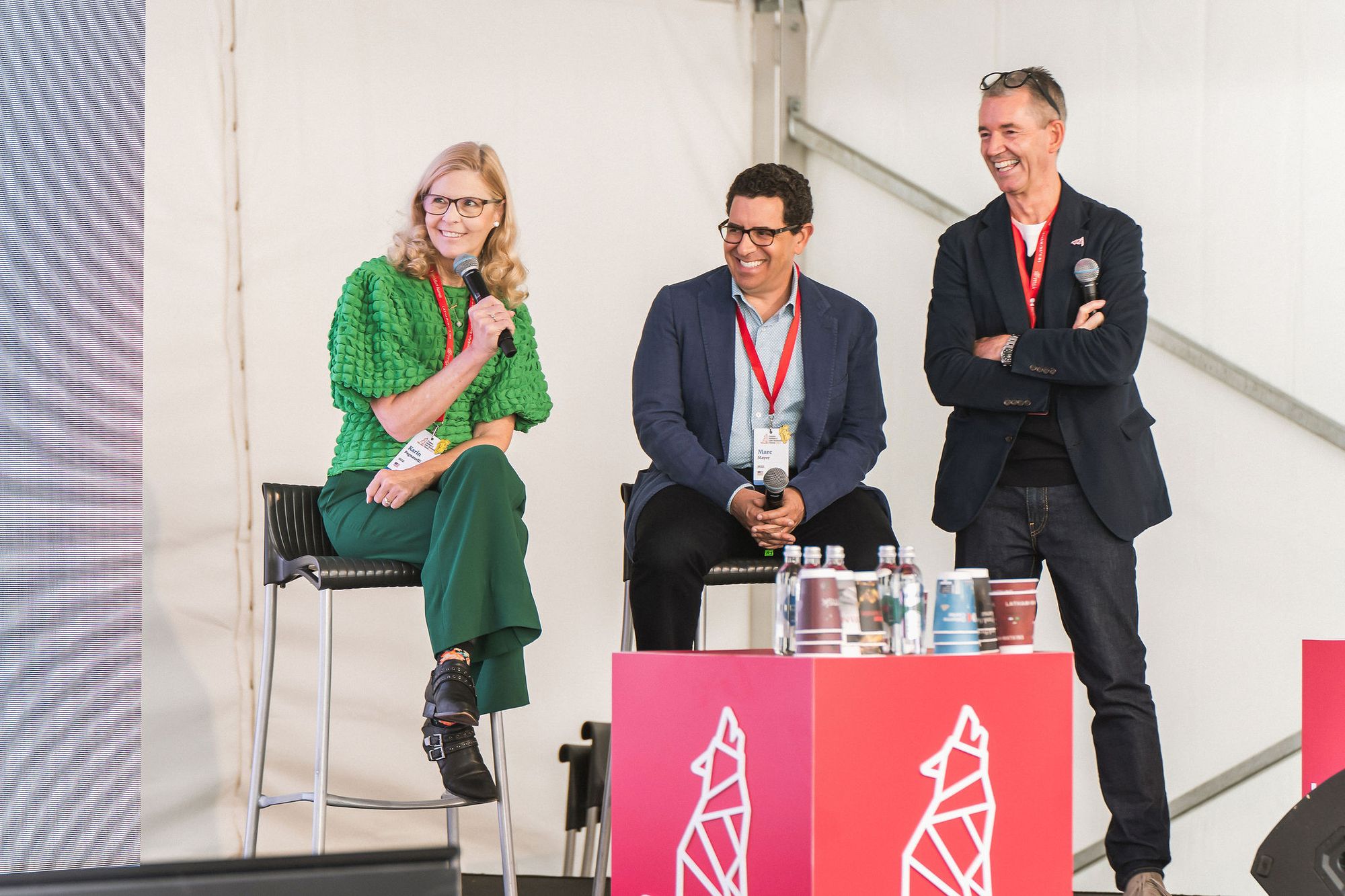
(As many of you know, Karin is also a long-time member of the judge panel at the Legal Challenge, joining us again for the 2023/2024 season!)
Leonie Schneider (Osborne Clarke)
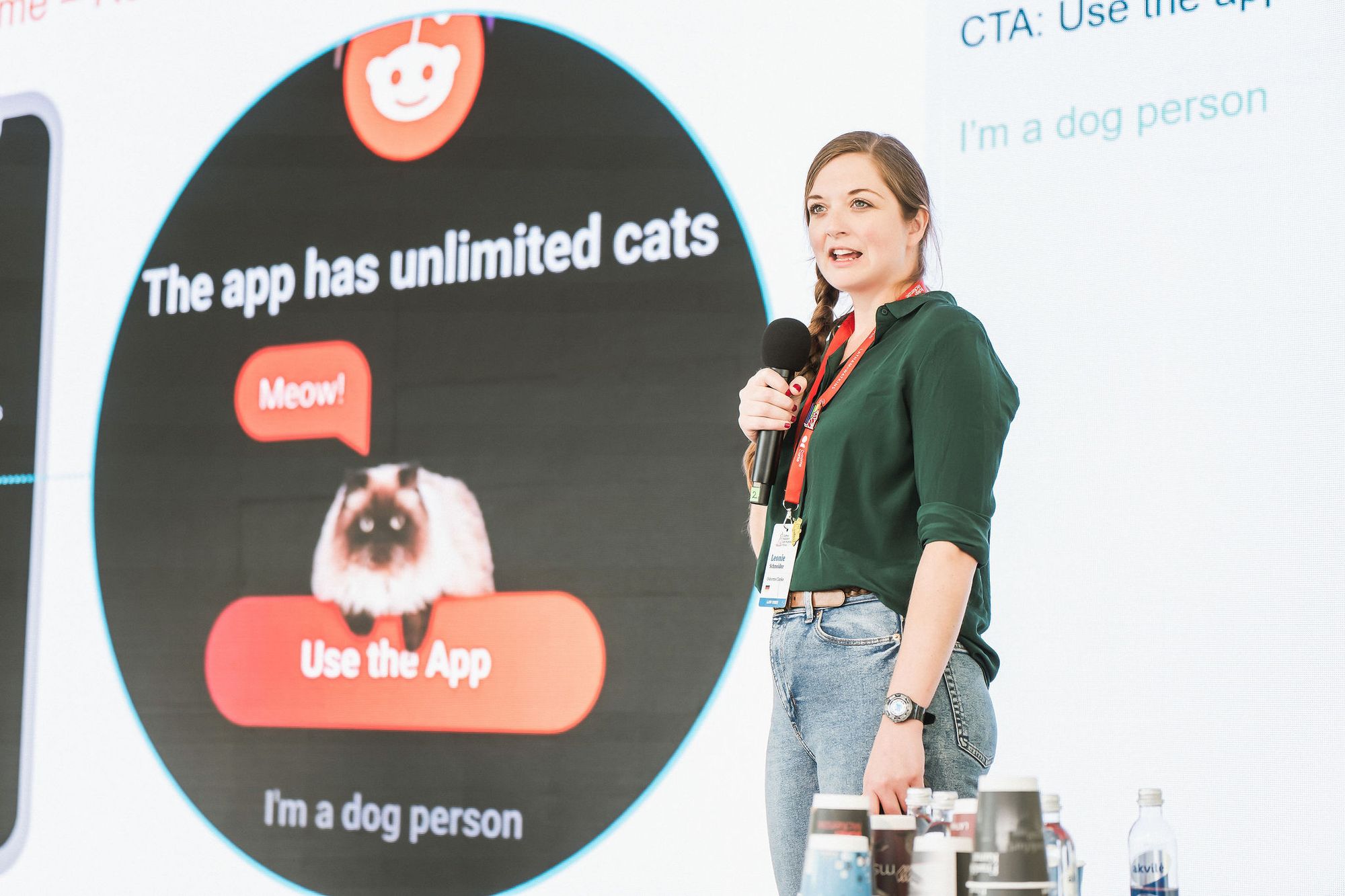
Having won the "Best Speaker Debut" nomination at the Warsaw event this spring, 🇩🇪 Leonie Schneider at Osborne Clarke is also among the most appreciated presenters in Vilnius, recognised for her part in "Unveiling Shadows: Dark Patterns & DSA".
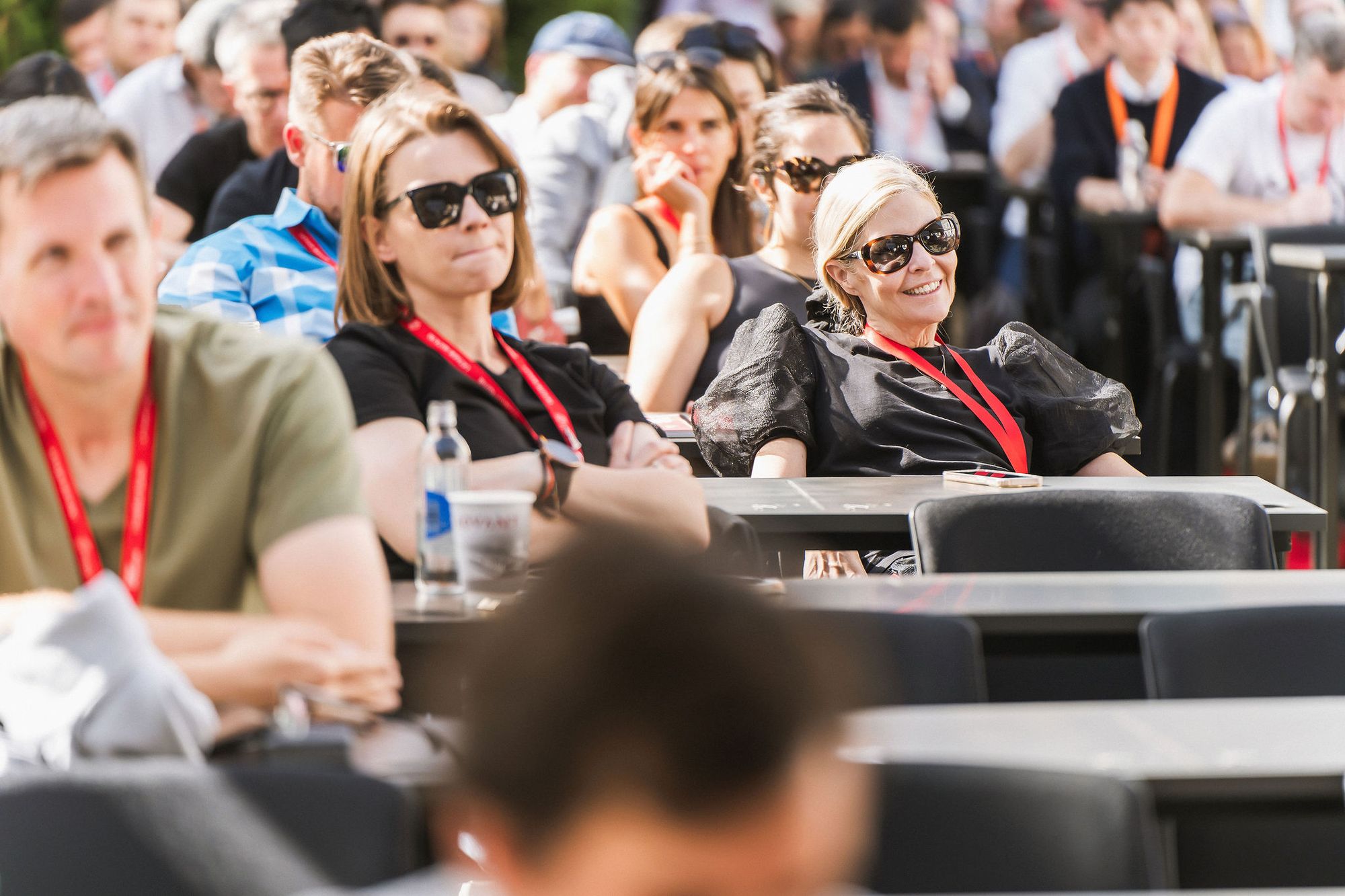
Full house in the tent...
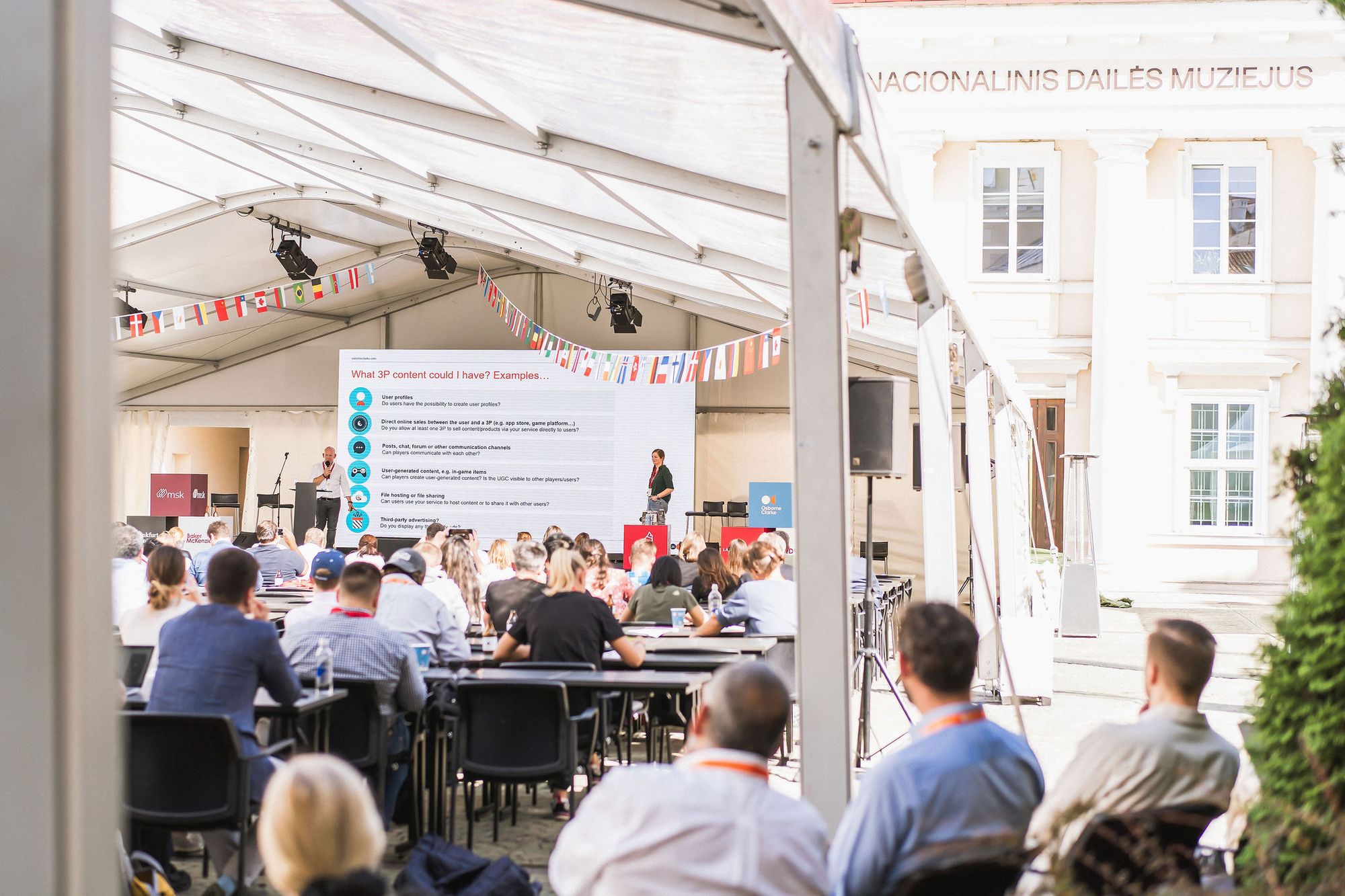
...and full house outside of the tent.
Greg Pilarowski (Pillar Legal)
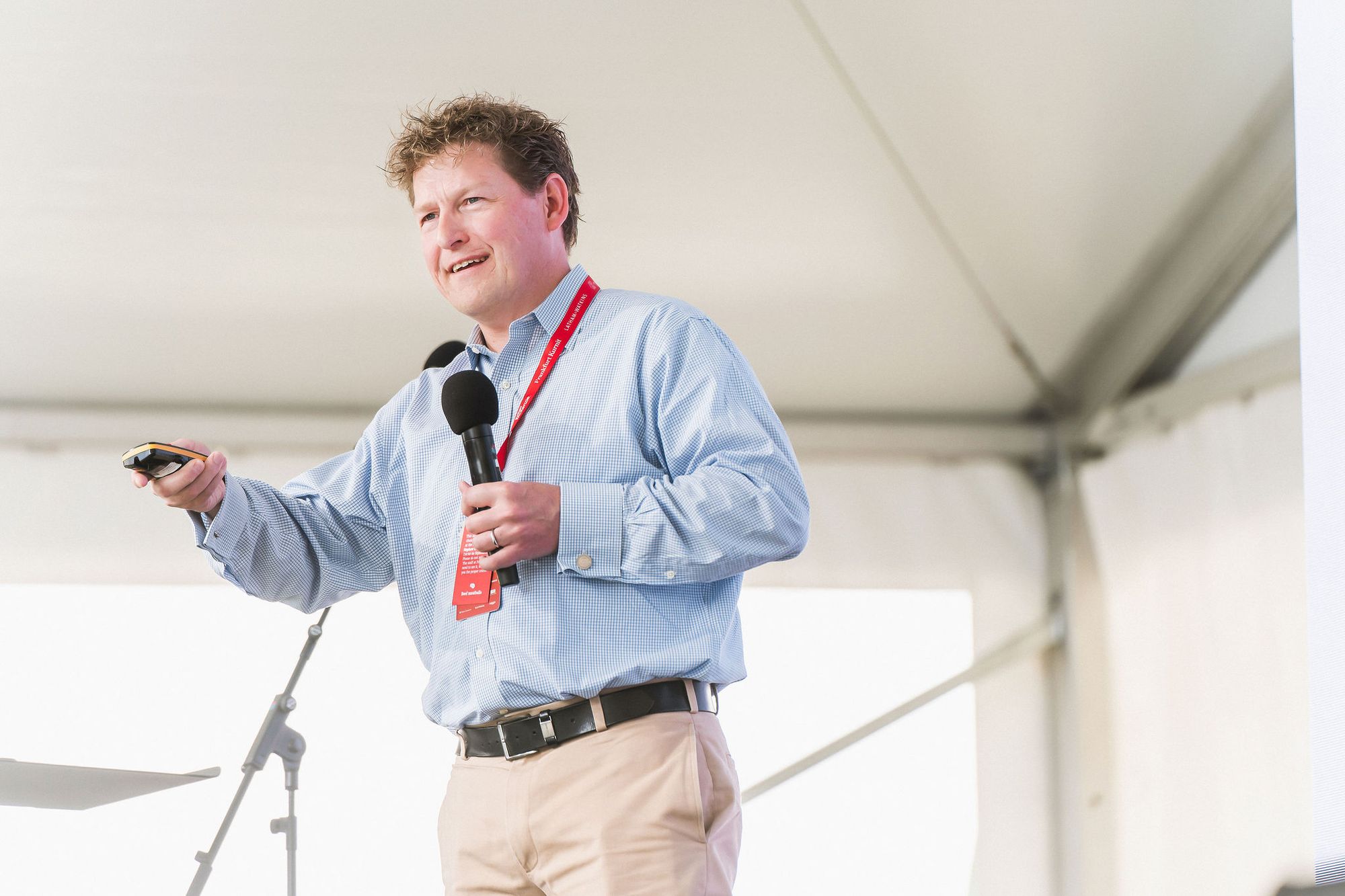
One of the few US lawyers to have ever served as the GC of a Chinese games company, this year 🇺🇸🇨🇳 Greg Pilarowski (刘思道) at Pillar Legal (美国博申律师事务所) contributed not only on "China: The Path to Success", but also on "Dealing with Trade Sanctions 2.0".
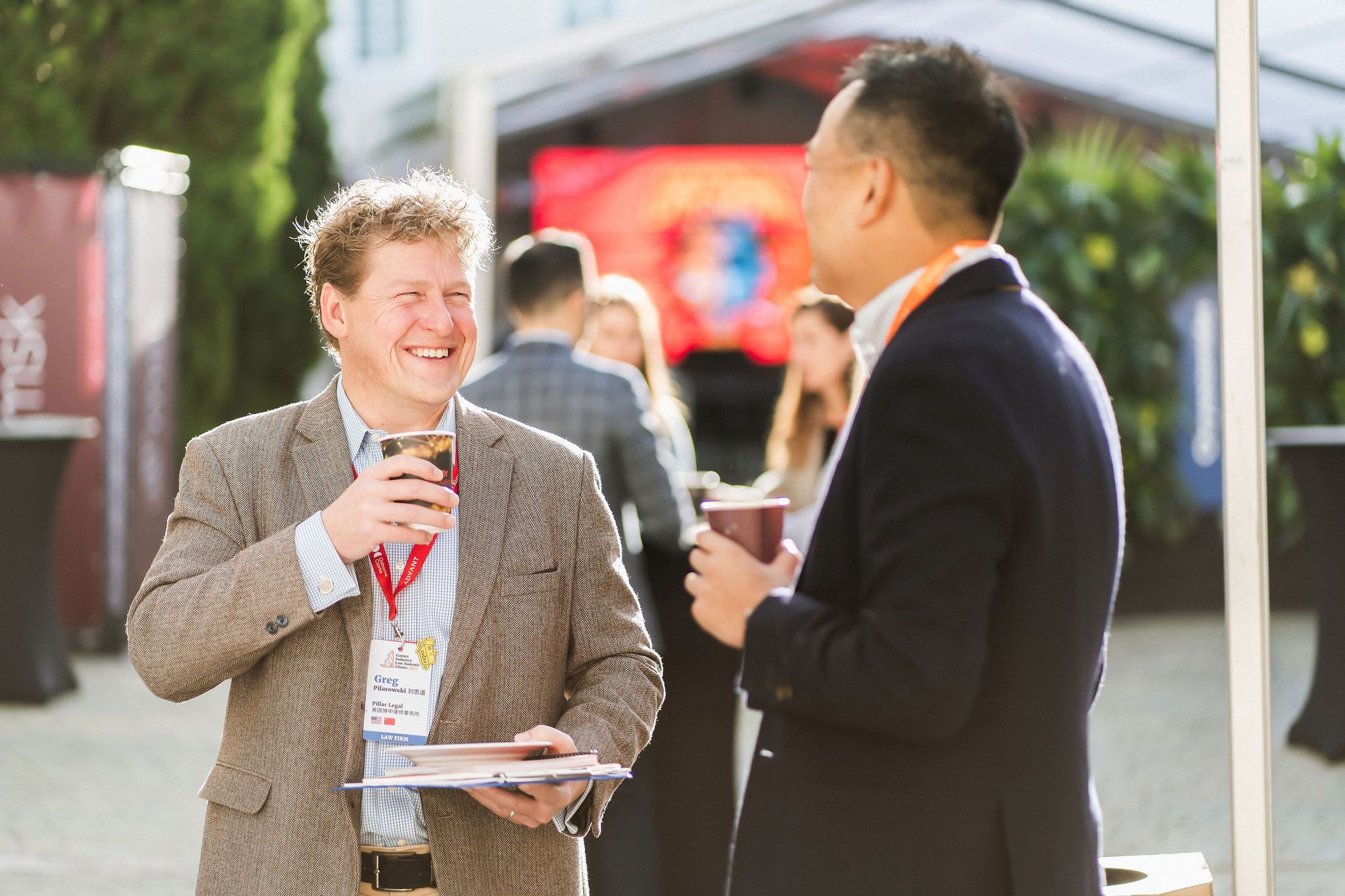
I personally think that everyone missed Greg, whom we last saw a few years back – and I'm happy to confirm that we will have the pleasure of seeing him at On Tour II in Limassol in April 2024 (perhaps this time, with a take on the US transactions).
Feedback 2023
As any developer who reads their Steam forums will tell you, improving your product based on user feedback is a walk in the park. For example, here's the feedback from this year's voting form:
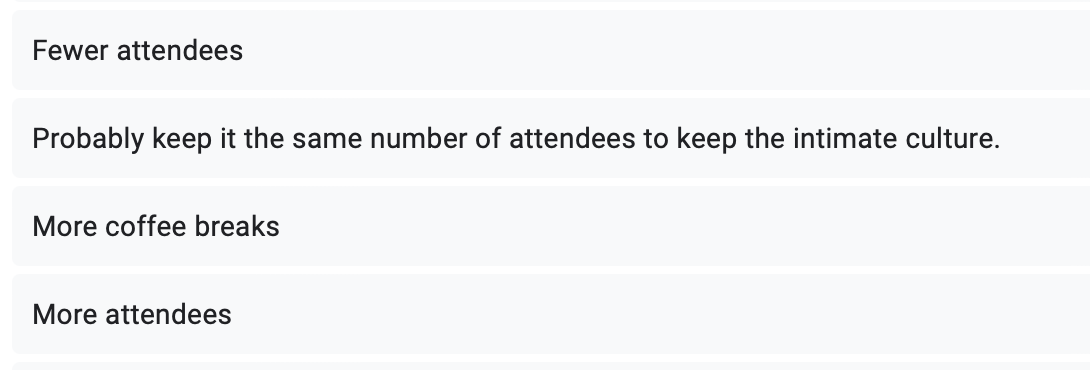
Basically, the trick is to find the feedback that matches your own thoughts, and then ignore the rest as 'irrelevant' :-D. Seriously though, it is a given that different people may react to the same thing with the opposite sentiment. For example, we received comments that orange lanyards for new community members were helpful ("liked the orange lanyards for first-timers") – but we also received comments that called this system "weird, othering and cliquey".
About two years ago, we asked our audience about what they wanted for the sequel to our board game (Gremlins, Inc.), and some people said the current game is "too challenging" while others wanted "something harder". The "easier" camp was made of players with less than 20 hours in the game, while the "harder" camp was championed by a Chinese player that (at that time) was the country's top chess player in his age group (I must say, he knew our game better than our own game designer; developing something to be challenging enough for him, was simply mission impossible).
Anyways, there's quite a number of great ideas in the comments, and we'll implement some of them as we gear up for Summit 2024. Meanwhile, on the attendees, here's the list of studios and firms from this year's event:
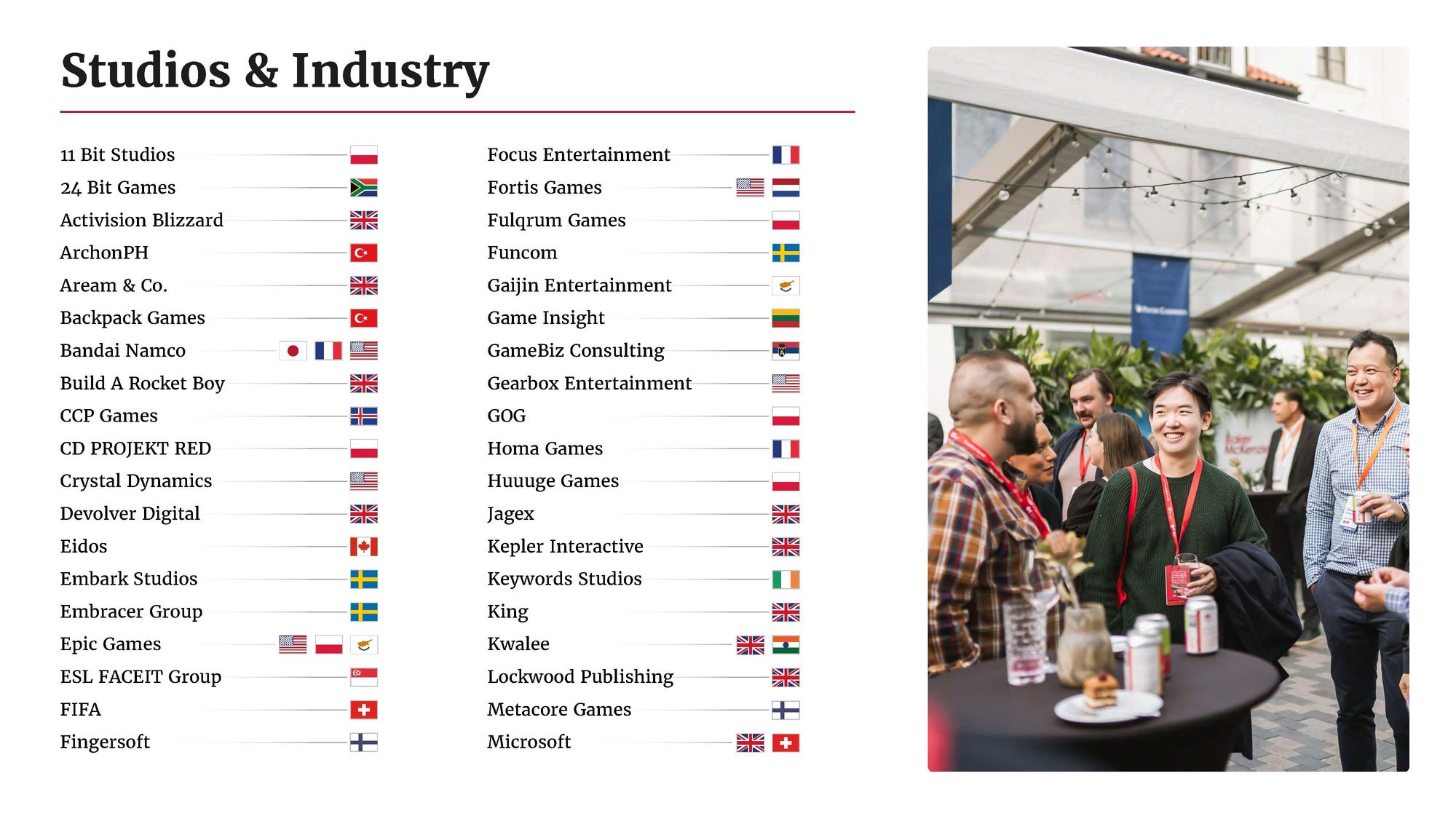
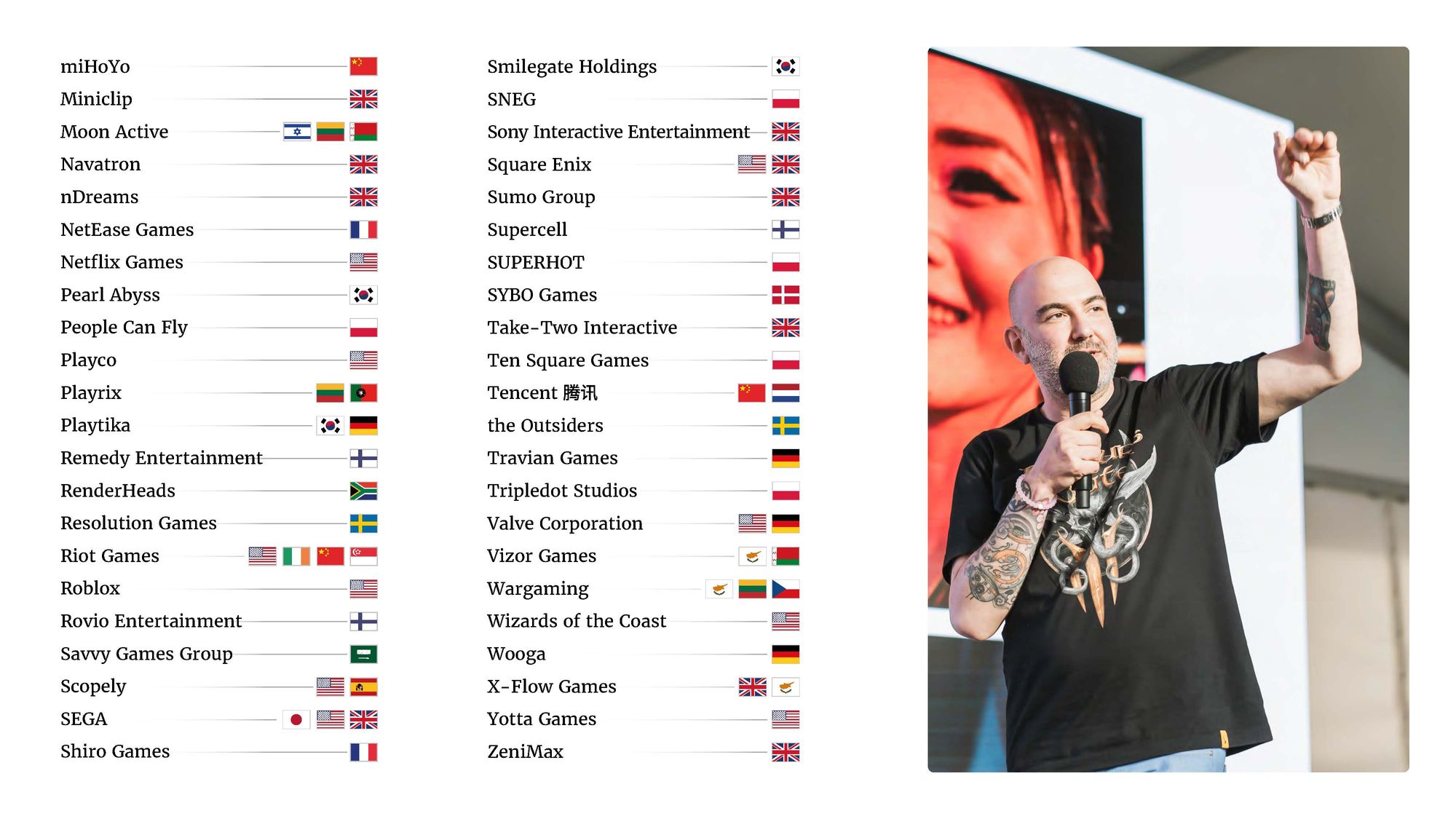
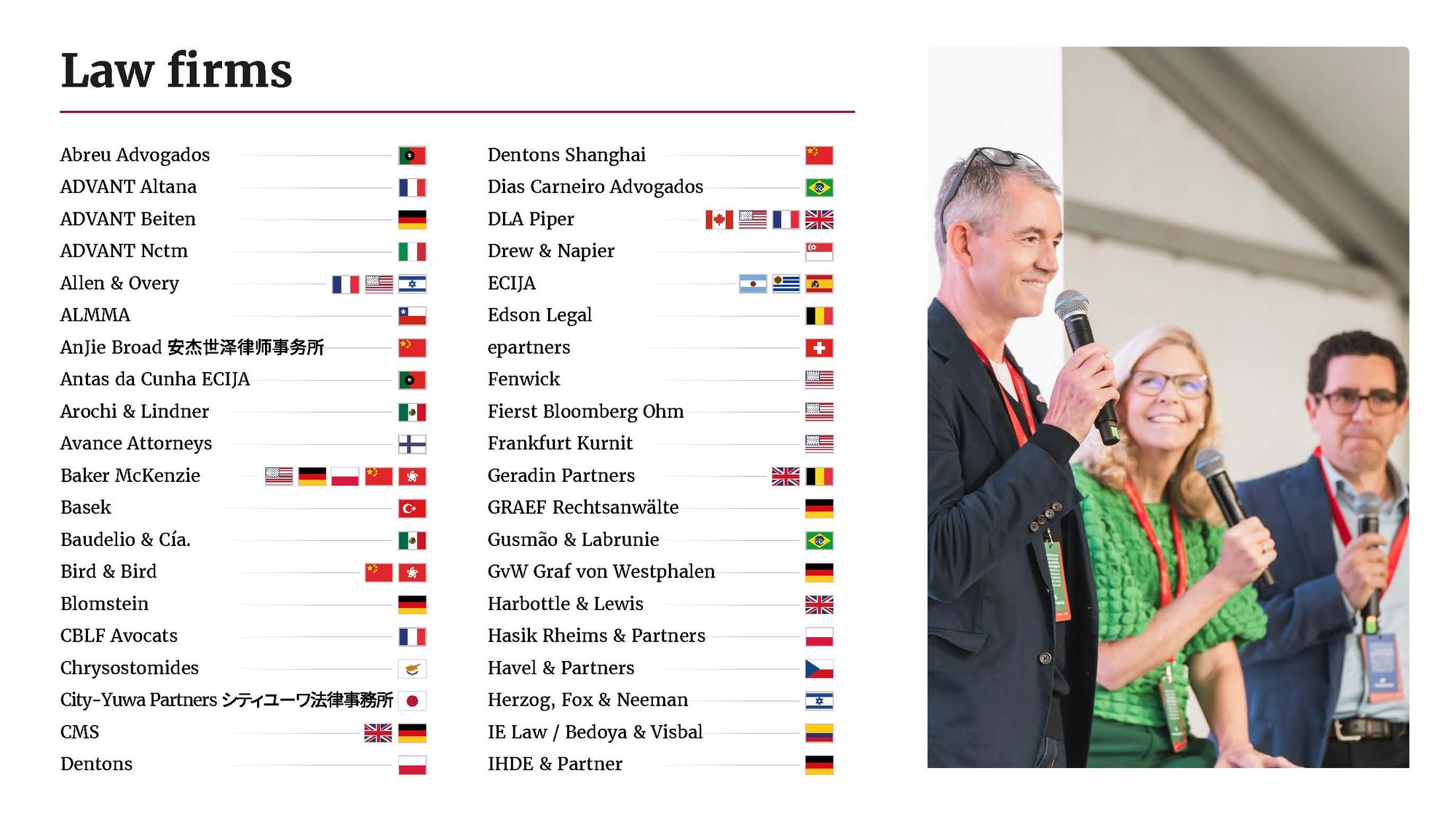
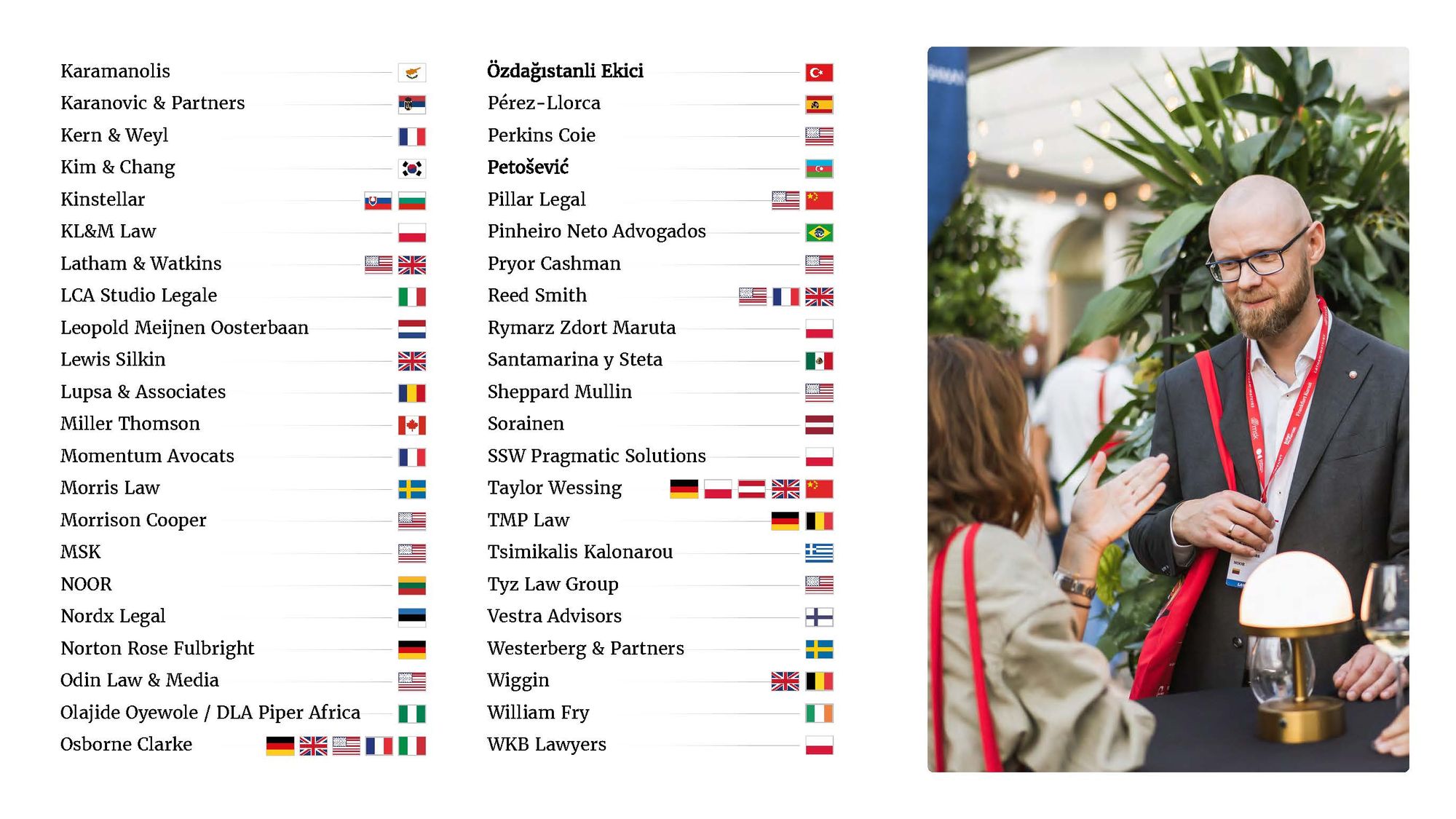
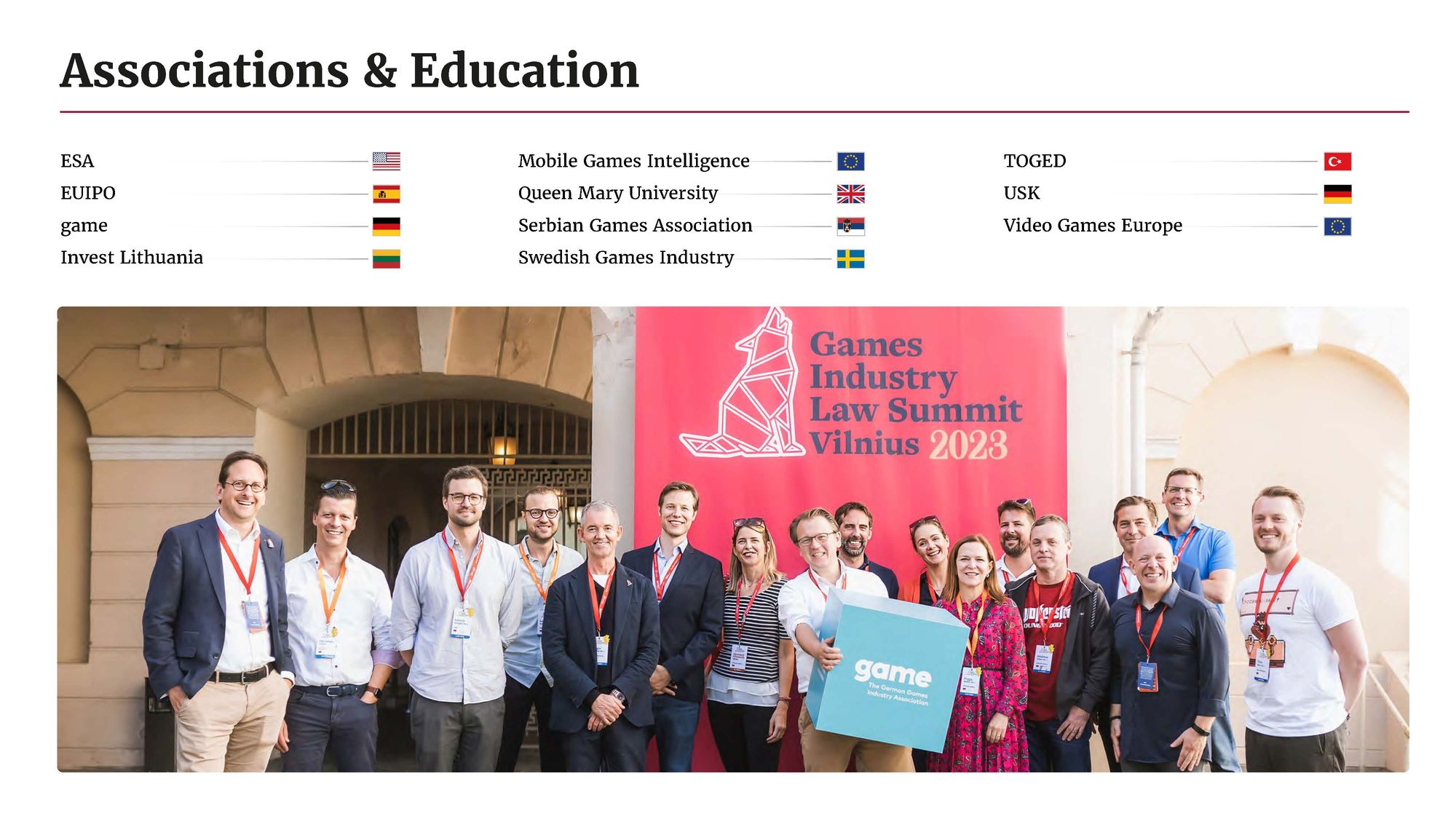
The trickiest part of putting together the 2024 event is to keep the per-firm representation to a minimum, so that we can onboard more in-house counsels – without exceeding the overall number of the attendees much (just kill me now).
Improving equality as a part of everyday focus
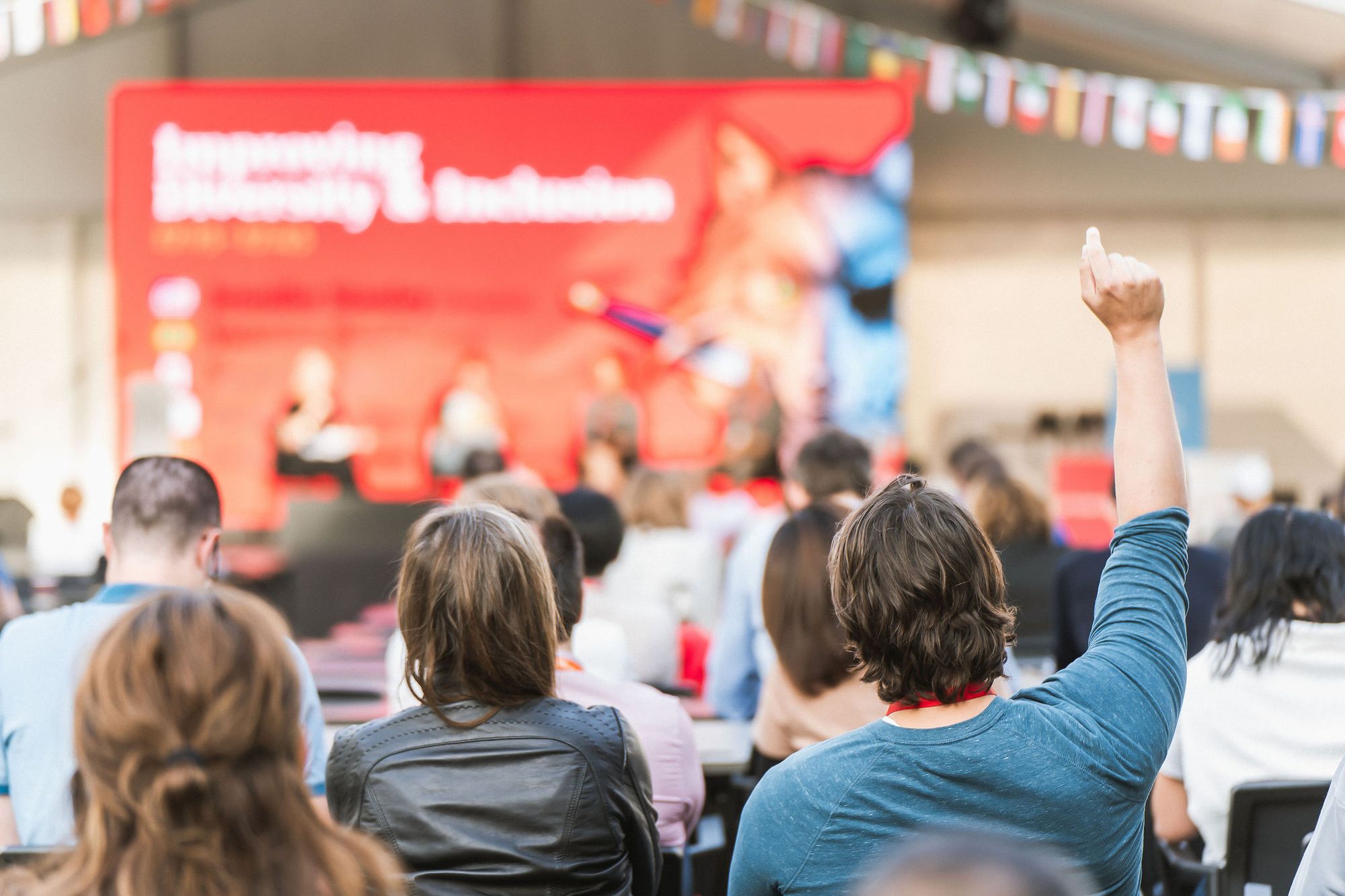
While this year's panel on diversion and inclusivity wasn't perfect, it's great that we got the discussion started – and that the community is committed to having the theme present at every single event that we will run in the future.
The more you think about the inequality, the more you see it everywhere around... and without having the community's support to fall back on, it can be quite easy to despair. I end this issue of the newsletter with just two recent examples that I find shocking, though perhaps it simply speaks of my own naivette.
Green Border (Zielona granica)
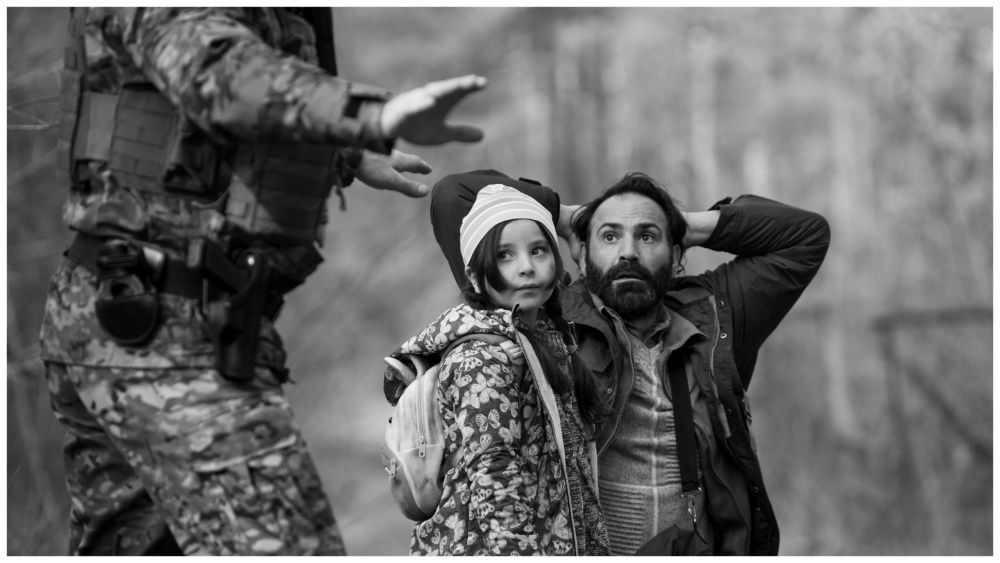
For about two years, our region has an issue with the displaced people trying to enter Poland, Lithuania and Latvia from Belarus. In early 2022, as I drove to Poland to scout for location of the premiere edition of On Tour, I got stopped 5 times to have my car checked for potentially transporting illegal migrants.
Against the background of people dying of frostbite while trying to cross, and the recent cash-for-visas scandal in Poland, you would think that the topic is something that a society would benefit from debating?
A Polish film director, Agnieszka Holland (European Film Academy's president in 2020), made a movie about it: Green Border, scheduled to open in Poland 4 days from now. The film has recently won the Special Jury Prize at the Venice Film Festival, with the Italian film critics calling it "one of the strongest films, cinematographically and politically speaking, seen this year at the Venice Film Festival" (Variety's preview here).
And yet over the last few weeks, we've seen people in the positions of power compare Agnieszka to Hitler's propaganda (by the Polish minister of justice, no less!), with the Polish Border Guards blaming the film for what they called "glorification of the pathological phenomenon of illegal immigration".
The distance that you have to go, to call the families that risk everything to save their children from the death camps of Syria, "pathological", is staggering. Especially for those who, like me, are old enough to remember Polish (and Lithuanian, and Russian, and whatnot) citizens trying to escape to the West from under the Iron Curtain of the USSR.
As others have mentioned at the conference, video games as the cultural medium can have a tremendous impact on the current generation. And it's on us to make sure that the values of equality, and justice, are a part of the signal that we send to the world.
The power of language
Last week, as I was following up the sessions with their leads, I came across a news piece with the following headline:
"Indian woman killed as migrant car plunges into river in southern Lithuania"
Does it really change the situation that the woman was Indian? And would the audience be expected to react differently if it were, say, a Latvian man? The thing is, nobody is certain that the person was, indeed, Indian. It's just a label slapped on them by the police. She could be Sri Lankan. She could be Turksih. She could be Dagestani, for all we know.
The use of "migrant car" in the headline is another trigger here. What is, exactly, a migrant car? According to the article, there's only a suspicion that the people in the car were migrants. But consciously or not, the journalist of the state agency that printed this, considered this description to be helpful in evoking the emotions that they were after.
Moving on, you may wonder, how did it come about, that a car "plunged" into the river – was it a malfunction, or an accident? Turns out, the car was pursued by the police, at 3 in the morning, in the middle of nowhere. But, I suppose, a headline of "Police chase a car in the middle of the night, pushing the driver to go off-road; a young person dies as a result of the crash" doesn't sound just as easy to swallow (the report is here).
All of this is to say that we still have such a long way to come, on the path of making equality the default condition of the public discourse. The impact of inequality is everywhere – and it starts with the language, and with the way that we accept a person's characteristics (nationality, gender, whatever) to be thrown into the conversation to drive a point.
Together, let's work on building a more equal world – starting with our professional community?
/ Sergei @ CO
